Student experience from completing an EASTBIO PIPS
2022 SRUC/UoE student Nicole Maffezzini completed his placement at SUISAG on the project "Exploring the genetic determination of aggressive behaviour in adult female pigs to improve human safety and animal welfare" and shared the following input with EastBio:
As part of a collaborative project, during my internship I collected data on pigs at nucleus farms of a breeding company. Besides project-specific skills, I learned how cooperate with an industry, which works differently from the academic environment. My ability to work independently improved.
While dealing with the different priorities industry has compared to academia was challenging, I really enjoyed the opportunity to visits different farms.
Benefits from this placement include: adaptability to work in a different situation; having to quickly take decisions about the project on my own; working autonomously in different conditions, managing long commutes, and balancing data collection and “office work”.
2020 Edinburgh-based student Evelina Venckute completed her placement at EvoEnzyme S.L. and sent us the following feedback:
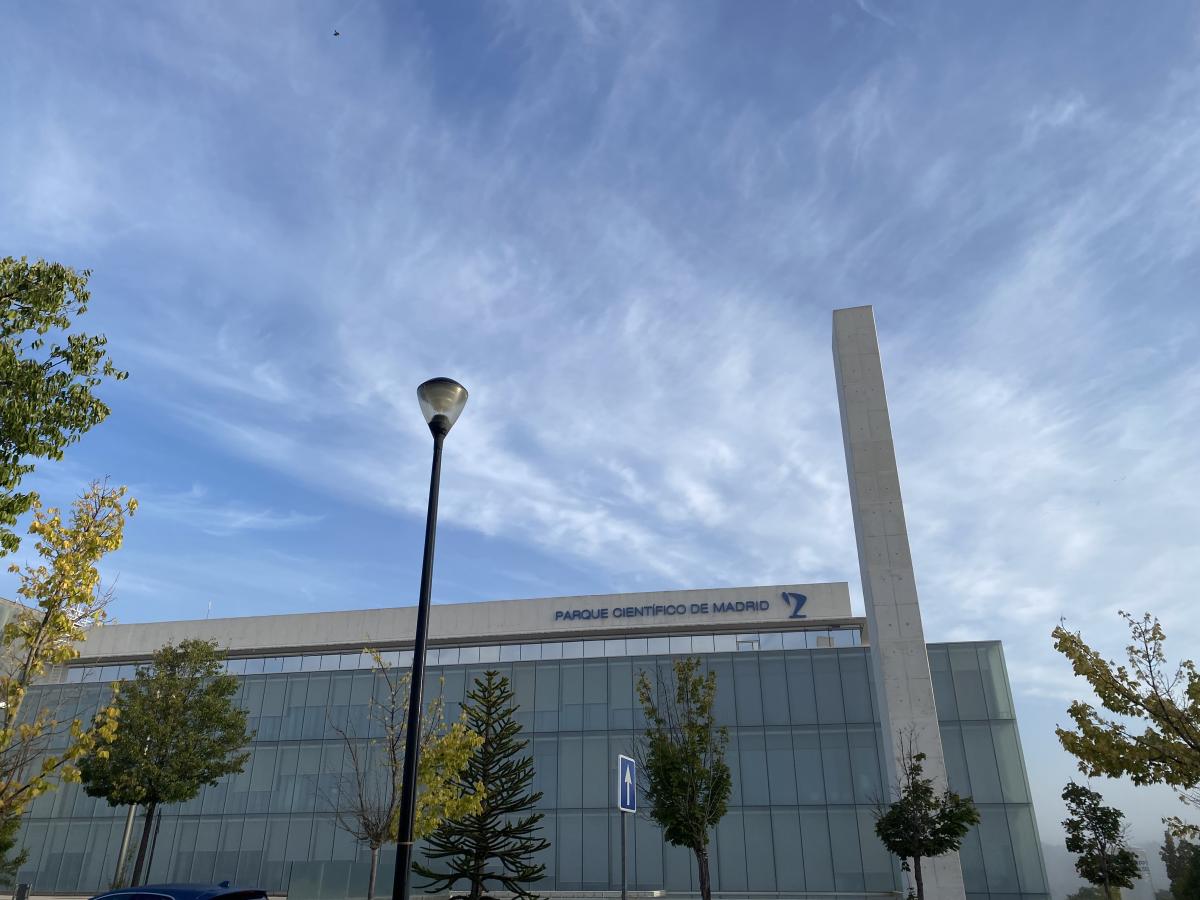
EvoEnzyme is a biotechnology company specialising in high-throughput screening methodologies for enzyme engineering and biocatalyst development. During my internship I was involved in a few ongoing research projects with a focus on production of enzyme libraries and screening of their activities.
During my internship I gained more experience in cloning techniques for preparation of enzyme libraries. In addition to lab-based skills, I’ve gained insight into the work dynamics within a biocatalysis company and how certain results from the academic research can be commercialised. I also learned how a small size company operates and handles its commercial projects, attracts new customers and new funding, and also conducts independent research.
It was interesting to learn about a variety of different projects the company is involved in. Thanks to this, I’ve witnessed how diverse biocatalysis field is and how it manages to find applications in various industry sectors. It was great to see how passionate about their work and their company’s technology the team were.
This placement experience provided me with additional insight into the applications of biocatalysis and its implementation to various environmental, medicinal and manufacturing problems. I’m sure this experience overall will be very beneficial when choosing a further career path after my PhD programme.
2021 Dundee-based student Mary Tozer completed her placement at the The National Archives, on "Exploring Material Histories: Heritage Science Investigations of Archive Collections", and shared with us the following input:
My placement was multifaceted, and I gained experience in a variety of techniques used routinely in heritage science to analyse organic and inorganic materials, including X-ray fluorescence, microfadeometry, Raman spectroscopy and fibre optics reflectance spectroscopy. Not only did I gain practical skills in heritage science research, but also learned more about the role of a scientist within the galleries, libraries, archives and museums (GLAM) industry, in particular, providing expertise on the safety, loan and display of delicate and historically valuable organic and inorganic materials.
The industry often has tight budgets as much of the research is publicly funded, which presented challenges during my placement, such as sourcing expensive parts for the Raman spectrometer. However, I was able to alter my methods slightly and utilise equipment already available in order to progress my project.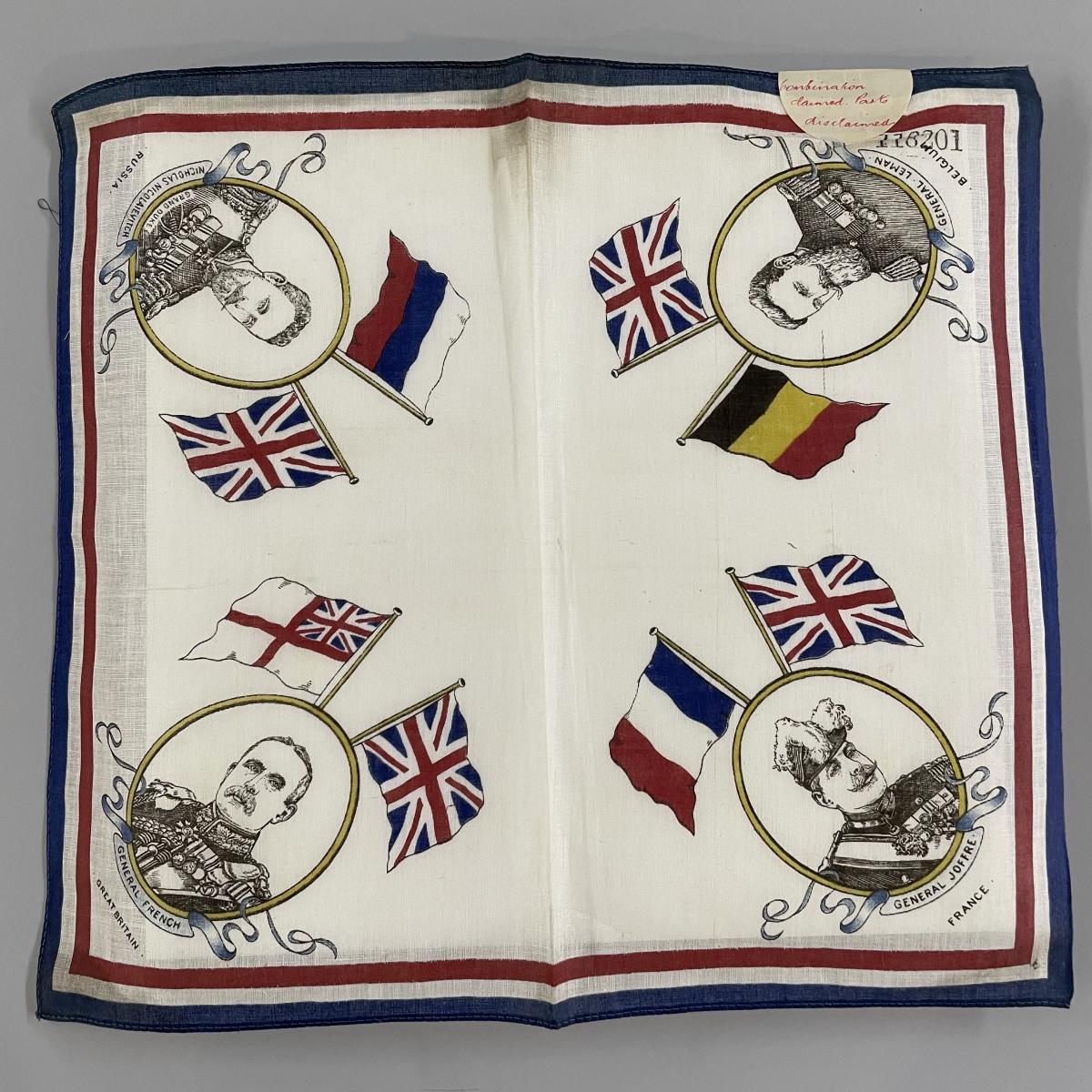
My favourite part of the internship was travelling to the National Museum of the Royal Navy in Portsmouth to analyse the material composition of a rare arctic sledge flag from the 1850s. Determining the reflectance spectra of the colourants and XRF analysis of dye fixatives allowed us to make predictions about the original colour of the now-faded flag, which will inform the curation of a new touring exhibition featuring the flag.
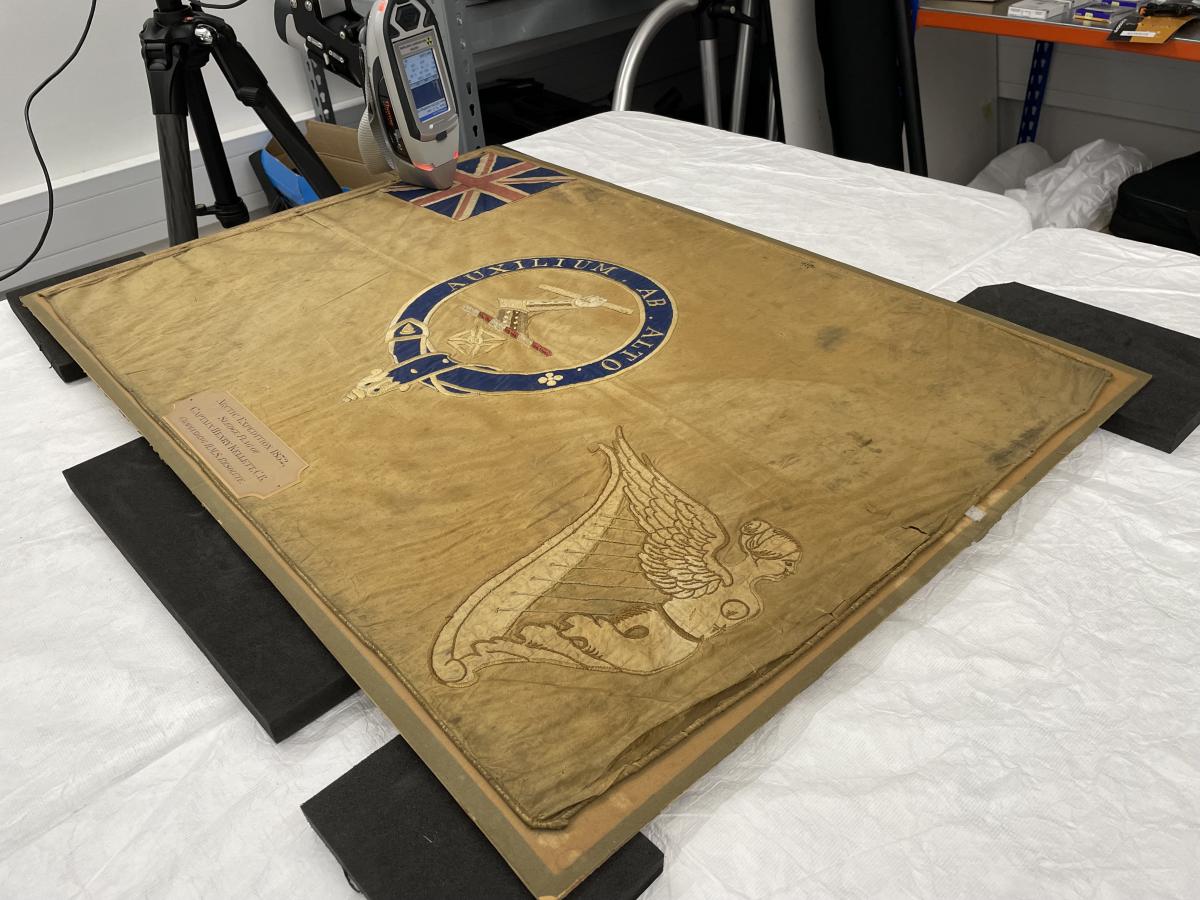
I got to analyse lots of other exciting objects like the Estate Duty for Virigina Woolf, a list of passengers on the Titanic, and several commemorative handkerchiefs from WWI.
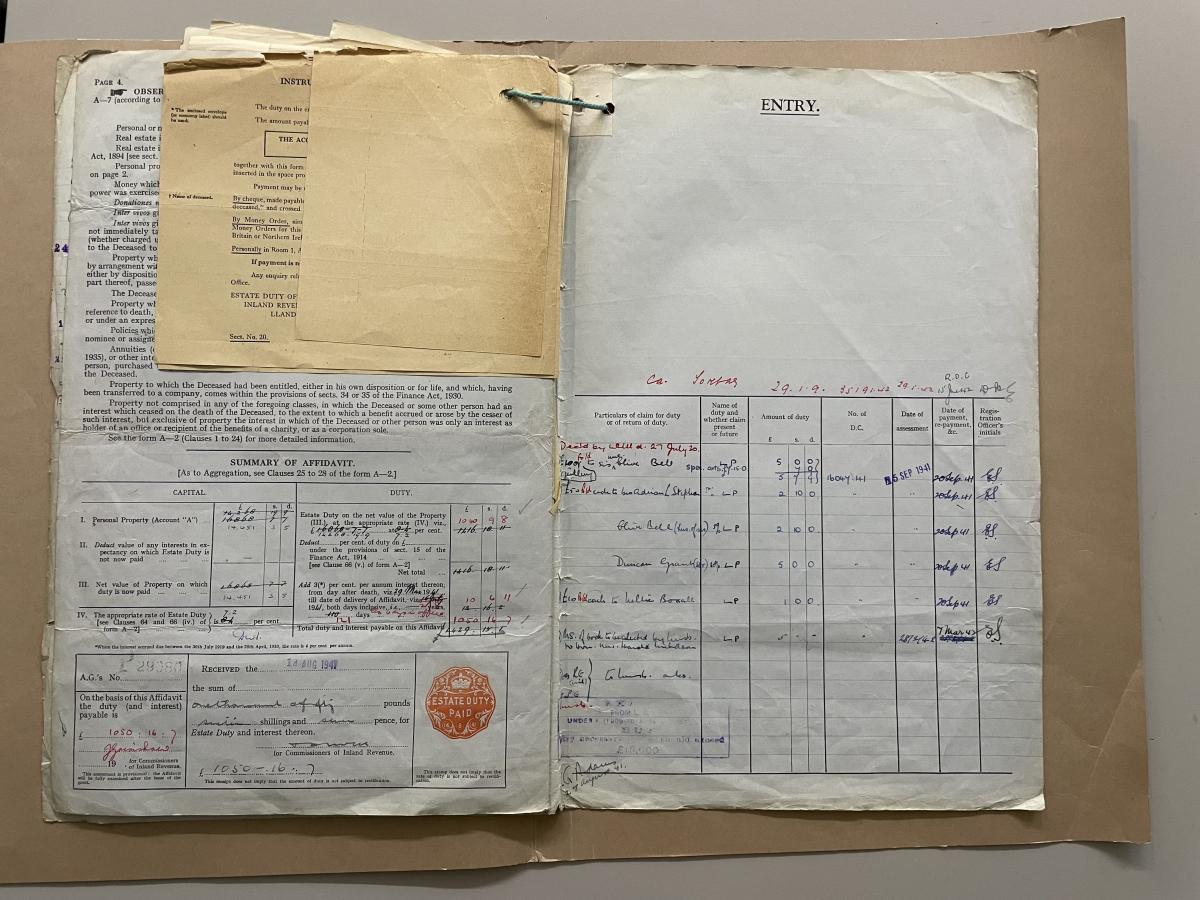
I also began to implement spatially offset Raman spectroscopy at The National Archives, a technique that is established in other industries but not routinely used in heritage science, which would provide the opportunity to conduct analysis on materials obscured by a layer e.g. unopened letters, or books with pages stuck together.
Working at The National Archives has opened up a variety of contacts within the heritage sector, as well as given me experience in working for the Civil Service.
2021 Edinburgh student Rose Doyle finished her placement at Random42 Scientific Communication, as a member of the Science Team, and sent us the following comments on her experience:
As part of the Science Team at Random42, I helped create medical animations that described the mode of action of certain drugs and the mechanism of disease for various diseases. I contributed by researching background information, drafting and referencing scripts, putting together storyboards and coordinating with the in-house production team of artists to ensure scientific accuracy in the final product. I also sat in on client calls and communicated client feedback to the production team.
This internship taught me how to communicate complex science in an engaging and digestible way. Additionally, I learnt how to organise my time to work consecutively on multiple projects, and how to work effectively as part of a team.
I particularly enjoyed seeing projects progress from the initial script-writing stage to storyboarding and animation. It was exciting to see how my work contributed to the production of the final 3D animations.
One achievement I am particularly proud of is creating a storyboard for an IgA Nephropathy MoD animation and using this to brief the production team. The production team are artists with no scientific background, so this really tested my communication skills in order to explain complex science to non-scientists.
I expect the writing skills I have gained from this internship to be beneficial during my PhD, for writing papers and my thesis. Beyond the PhD, this internship has given me an insight into a potential future career which I was not aware even existed before!
2021 Aberdeen student Felicitas Pamatat finished her placement at the Federal Agency for Nature Conservation, Berlin, and sent us the following comments on her experience:
During my internship at the Federal Agency for Nature Conservation (BfN) in Germany, I focused on the social implications of nature-based solutions in an international context. I was part of the international division, co-organised workshops, attended seminars and conducted literature reviews on subjects ranging from Green Infrastructure to Biosphere Reserves in Africa.
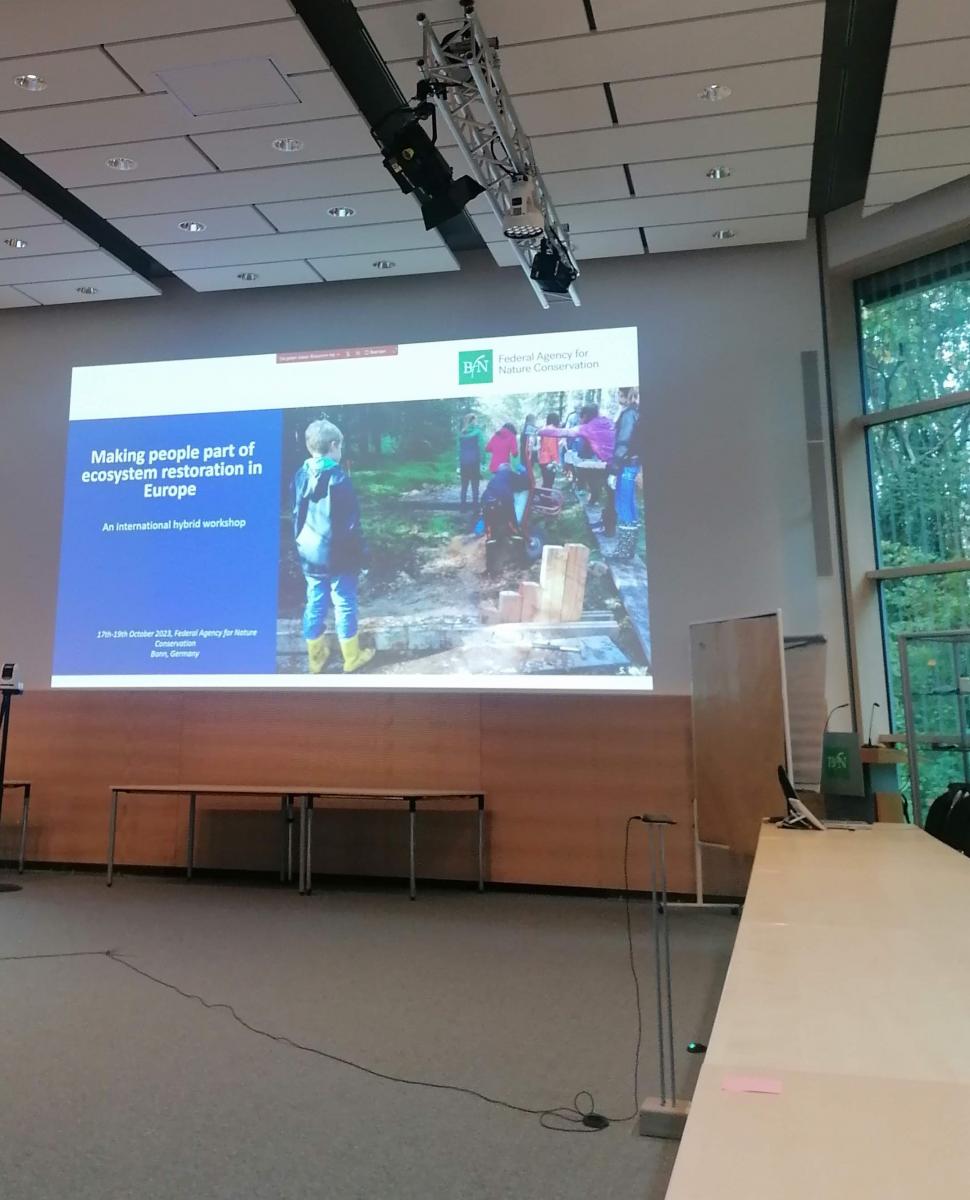
During my internship, I was able to join meetings and workshops with other governments, the German UNESCO Commission, conservation NGOs and universities. This not only gave me incredible insights into the proceedings of the BfN but also kept me up to date with projects of the other organisations. Working closely with different civil servants within the agency, I had the opportunity to edit articles, contribute to blog posts, and engage in policy writing. These experiences enhanced my practical and soft skills.
Despite the brief three-month duration of the internship, I gained significant insights into project management at the intersection of science and policy. I also got to network and connect with people from various backgrounds and roles who are all passionate about conservation, which was a fantastic and extremely rewarding experience.
The internship has also given me a perspective on potential career options post-PhD. It has provided me with insights into the practical applications of environmental conservation and policy, offering a fantastic base for my future career.
2020 Dundee student Laura Pugh finished her placement with Xelect Ltd, Analytical Services and sent us the following feedback:
During my PIPS, I developed a pipeline for the processing and analysis of ONT long read sequencing data using the snakemake workflow management tool. I also assisted in the construction of a new company database and in writing a custom R package to facilitate data processing, cleaning, and upload to the new database.
I worked predominantly in the analytical services department but did get the opportunity to spend some time in the laboratory, processing customer samples and running genotyping assays and, for one week, shadowing a breeding programme manager. Seeing how the other departments in the company operate was incredibly helpful in allowing me to develop software tools and pipelines that are tailored to their future users.
I learned how to use the snakemake workflow management tool to create an easily reproducible computational pipeline. I developed a working understanding of the SQL programming language for database creation and management. I learned how to write a custom R package and tailor this to the needs of its future users.
Writing the R package was something I particularly enjoyed. This was a little daunting at first as I had no experience with this but, once I got started, it came quite naturally and was very fun.
In terms of achievements - I had the opportunity to apply my computational skills to software development and produce software tools that could be used by other members of the company to process their data. I learned a new coding language and vastly improved my proficiency with R (in particular the use of tidyverse). Hopefully, this will expand future employment opportunities.
2021 Moredun Research Institute Karen Keegan completed her placement with the UK Centre for Ecology & Hydrology (UKCEH) on "Applying population genomic data for the sustainable management of forest genetic resources in Europe – A case study in Scots pine", and has sent us the following comments on her experience:
My placement was based within the Ecology, Evolution and Environmental Change Group at UKCEH Edinburgh, where I worked on population genetics of Scots pine (Pinus sylvestris). My day-to-day work involved coding in R and getting to grips with several population genetic analysis approaches.
This gave me greater confidence in problem-solving and writing my own code, a key aim I hoped to achieve during my PIPS. It also allowed me to gain awareness of the fact that a data science career, or one that involves significant coding/bioinformatics, would suit my interests and skill set.
During my time at CEH, I examined the population genetic structure of a selection of European populations of Scots pine and ran a genetic-environment association study to identify genetic adaptations to various environmental pressures.
It was a pleasure to be able to work at CEH and gain new skills, while contributing to the long-term conservation of Scots pine genetic resources.
2020 Aberdeen student Emily Candlish completed her placement at the University of Aberdeen Research and Innovation and sent us the following comments:
My internship consisted of consolidating training from different schools at the University to be compiled and structured into a Researcher Development Framework which can be used to enhance and support researchers career development. This also included developing training pathways for specific goals like grant application and research commercialisation, with the intent to providing training, internal support and further external resources to researchers who may not know how to undertake specific goals.
I learnt a lot about how R&I teams within a university support their research staff, the various concordats and practices that have to be adhered to for good research practice and how all of these combine to affect the University’s funding through things like the REF Awards.
I really enjoyed the creativity and free-reign I was given to put together the pathways and frameworks.
The framework and pathways I created will be implemented and built upon by various teams and schools to provide a comprehensive guide for researchers to use to develop their careers and present them with the information and support to do so.
My internship provided me with a lot of new information and resources that will enhance my own research career, and helped me to understand the reality of further continuing in academic research.
2021 Edinburgh student Bob Mason completed his placement with deCODE genetics (Island) and sent us the following:
I have just completed my PIPS, which was hosted by Íslensk Erfðagreining (deCODE genetics) in Iceland. For my project I was given a large set of blood sample transcriptomes and, through statistical modelling, I identified genes that displayed seasonal variation in expression patterns. From there I worked to identify regulators of this response and how it interacted with variation in sunlight across years.
I t was a great experience to not just work in a different setting to academia but also in a different country as both posed unique challenges, especially the Icelandic winter! Working at a company with the resources and data that deCODE has gave me the opportunity to vastly improve my bioinformatic skills. This was also an opportunity to work in a totally different field to my PhD project, in human physiology rather than plant immunity. I feel I have gained a lot of confidence in my ability to transition between working on different organisms if opportunities like this present themselves in the future.
t was a great experience to not just work in a different setting to academia but also in a different country as both posed unique challenges, especially the Icelandic winter! Working at a company with the resources and data that deCODE has gave me the opportunity to vastly improve my bioinformatic skills. This was also an opportunity to work in a totally different field to my PhD project, in human physiology rather than plant immunity. I feel I have gained a lot of confidence in my ability to transition between working on different organisms if opportunities like this present themselves in the future.
After this experience I have learned a lot about working in a very different environment and am now a lot more open to working abroad or in industry in future.
The Photo shows Reykjavík skyline from the deCODE building, with Hallgrimskirkja church in the background
2020 intake SRUC student Beth Riley completed her placement with AHDB and shared the following feedback:
During my time at AHDB, I have been part of the Animal Health and Welfare team. The team has welcomed me with open arms and has been great fun to work with. Over the course of my internship, I have been involved in several projects. These have included knowledge transfer activities – working on the new Youngstock Housing Guide and calf health scorecard, which are now available on the website and in print. This was completely different to anything I have done before as it involved editing work that someone else had done. However, I learnt a lot about editing, and how publications work. I have also honed my data-analysis skills and put them to effective use when preparing information for a report for tracking progress against the GB Dairy Calf Strategy. Working with a different data set than I am accustomed to has been a rewarding experience, as it required me to adapt my approach.
Another project I have been involved with was Medicine Hub. I have seen how the project has developed and the process of working with web developers and I have been able to assist with developing data-verification procedures. Recently, I have been working on some communication to external stakeholders and the press on upcoming changes to the Significant Diseases Charter. Pigs are something I did not see very often as a vet, so learning more about this vital initiative and how AHDB supports the pork sector was a great experience. It allowed me to further apply the editing skills I have developed while working on the Youngstock Guide to compose communications for the press.
I have also had the privilege of joining the Knowledge Exchange team at a Strategic Dairy Farm meeting, a farmers discussion group and a conference. These experiences provided me with valuable insights into a different aspect of the business. Meeting levy payers and witnessing first-hand how they benefit from AHDB’s work was truly enlightening.
I learnt a lot about editing, and how publications work. I have also honed my data-analysis skills and learnt how to adapt my approach.
I particularly enjoyed meeting farmers and seeing how they benefited from AHDB's work. Among the outcomes of my placement, I'd include editing the Youngstock Housing Guide. I made loads of new contacts throughout the industry, which will be of great use in my career.
2020 Aberdeen student Tamsin Woodman completed her placement with Forest Research:
I carried out a research project into the effects of time lags in ecological systems on conservation success during my internship at Forest Research. For the project, I used landscape simulations and individual-based modelling to help investigate the impacts of landscapes and species' parameters on the number of extinctions after habitat destruction, and the recovery of populations after habitat restoration.
During my internship, I learned how to model landscapes with different properties and also built on my previous experience in individual-based modelling. Additionally, I gained insights into how research is conducted in a government setting, and how this research can influence policy.
I have particularly enjoyed working on a project with clear policy implications during my internship, as an understanding of the time it takes for a species to recover after habitat restoration is important for setting biodiversity targets. Working collaboratively with colleagues at Forest Research and external collaborators was another highlight of the internship, and although I worked remotely most of the time I really appreciated having the opportunity to visit the Forest Research office in Edinburgh.
I will present the outcomes from my internship at the British Ecological Society Annual Meeting at the end of 2023. Moreover, I hope to continue working with Forest Research in the future to develop knowledge exchange materials, such as a research paper or policy brief, to communicate the results of my project.
My internship has given me a better understanding of possible post-PhD career options, as well as useful skills that I am planning to apply in my PhD. The PIPS Host and Supervisor were very supportive both during the planning for my PIPS and when carrying out the project itself.
2021 St Andrews Shannon Richardson sent us the following feedback on her placement at Jena Bioscience:
I have recently completed my PIPS at Jena Bioscience, a biotechnology company in Jena, Germany. I worked with a small team in the chemistry/nucleic acid department attempting to enzymatically produce modified nucleotides that they usually produce synthetically. Aside from developing new scientific skills, during my internship I was able to explore working on a very large-scale and working to a strict deadline all whilst communicating in a different language!
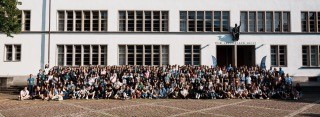 This project was focused on creating a greener alternative to chemicals that are in high demand and, as a result of my time there, they will be able to sell new products that I successfully produced. It was really interesting to see the differences in industry, where purity and stability of the product is of huge importance, but it all needs to be manageable within the tight turnaround times and be as green as possible. The sheer scale of production was fascinating – I was often purifying my compounds on 15 litre columns and collecting in buckets!
This project was focused on creating a greener alternative to chemicals that are in high demand and, as a result of my time there, they will be able to sell new products that I successfully produced. It was really interesting to see the differences in industry, where purity and stability of the product is of huge importance, but it all needs to be manageable within the tight turnaround times and be as green as possible. The sheer scale of production was fascinating – I was often purifying my compounds on 15 litre columns and collecting in buckets!
I organised this internship through DAAD (German Academic Exchange Service), and I would highly recommend looking at their PhD internships for those who are yet to complete their PIPS. They ensured I was able to integrate into Germany well, organised a large conference with all students studying abroad in Germany and provided a huge network of support and scientific exchange.
I thoroughly enjoyed my time in Jena and will benefit from the insight into the biotech industry and the large network of people that I interacted with.
Daniel Dornan (Aberdeen, 2020 intake) shared the following comments on his Rathlin Island life raft project he engaged with for his placement, in 2023:
The project aimed 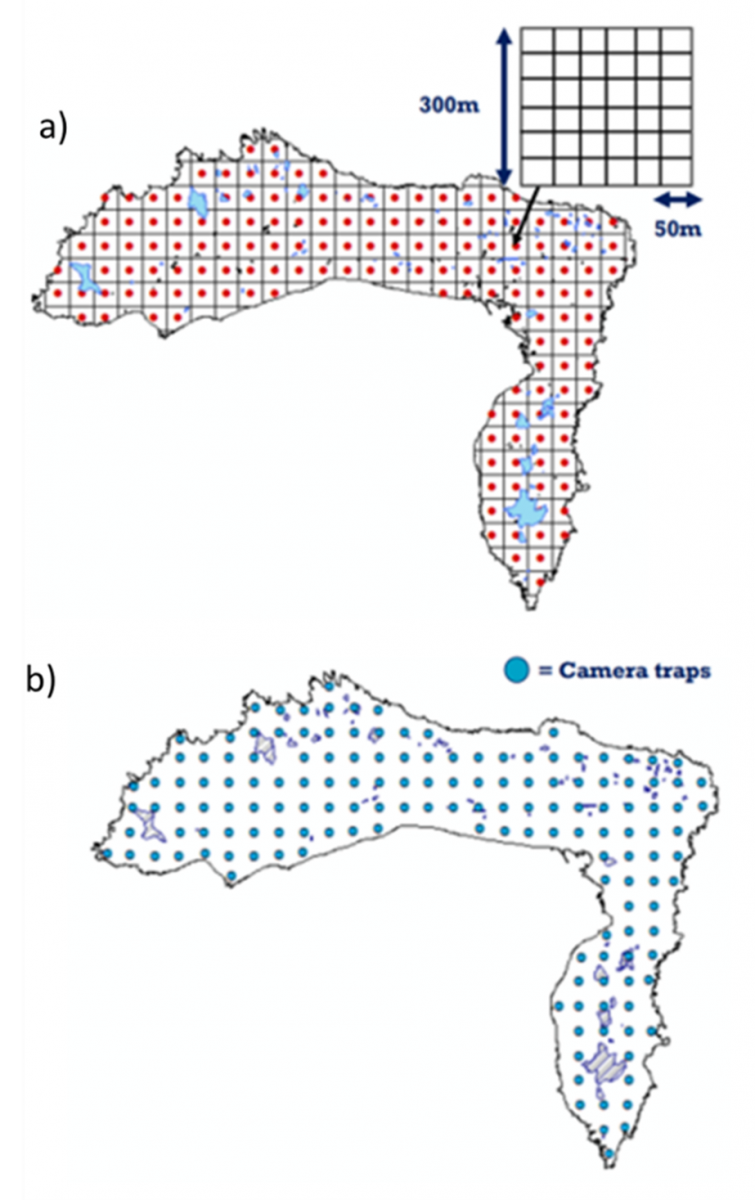 to assess the applicability of camera trap designs intended for capturing ferrets in detecting rats (specifically, Rattus norvegicus). Additionally, we examined how various environmental conditions affect the presence of Rattus norvegicus, considering factors that may affect detection accuracy.
to assess the applicability of camera trap designs intended for capturing ferrets in detecting rats (specifically, Rattus norvegicus). Additionally, we examined how various environmental conditions affect the presence of Rattus norvegicus, considering factors that may affect detection accuracy.
During this internship, I had the chance to apply my acquired expertise from my PhD, which primarily revolves around disease ecology and management. This was instrumental in contributing to a conservation project cantered on the complete eradication of rodents. This experience has sparked my interest in potentially pursuing a career in this field.
Due to logistical constraints, attending in person was not feasible, and I adapted to a remote working arrangement. However, this posed a significant challenge, particularly due to the island's limited Wi-Fi access.
In addition to networking with potential employers, I have acquired valuable experience in both the application and administration aspects of eradication projects. These insights have equipped me with essential skills that would likely enhance my prospects of securing employment in this sector in the future. This internship has served as a foundational introduction to the sector, fostering valuable dialogues and establishing relationships with key practitioners. These connections are pivotal for future projects and personal development within the field.
2020 intake Erin Brown (Aberdeen) shared the following input on her placement with the Company of Biologists:
During my internship, I worked on various data analysis project for the 5 journals under The Company of Biologists – the data went towards informing various future decisions as well as being included in annual reports for the board of directors. As a result, I learned a lot with regard to how publishing houses function and run on the day to day as well as how impact factors are calculated.
I really loved the office environment and everyone at the company. They made me feel extremely welcomed and made sure that I was always felt involved and part of the team. I was able to work with various journal teams to generate data for their annual reports as well as in-house discussions. The wider benefit from this placement is that I am feeling more confident in myself and my abilities in the workplace.
2021 intake student Phoebe Crawley (Dundee) completed her PIPS at The Royal Institution and sent us the following comments:
My PIPS was based at the Royal Institution, a science communication charity in central London. Here, I worked closely with the team in the L’Oreal Young Scientist Centre to deliver science workshops to young people. I also helped run science family fun days, gave engaging talks about current research topics in science and created scientific content for the Royal Institution’s blog and social media pages.
Throughout my PIPS, I had numerous opportunities to improve and enjoy presenting to a wide range of different audiences, ranging from 8-year olds, to 18-year old students, to adults with PhDs. I found that the internship really highlighted the importance of engaging and fact-driven science communication for the general public.
Even though the PIPS was primarily aimed at improving my scientific presenting skills, I found that I particularly enjoyed writing scientific content for their blog. It was a fun challenge to write high level science in a manner which is accessible and engaging for the science-curious public. Going forwards, I hope to continue writing for their blog when I feel inspired!
A highlight of my internship which will be beneficial for future employers was grasping the opportunity to present in the Royal Institution’s Theatre. This has a wealth of history with world-renowned scientific presenters - it’s quite unique to be able to say that I’ve presented science on the same spot as David Attenborough, Jonathan Van Tam, Alice Roberts, Michael Faraday…
Since coming back to Dundee, I have been in contact with senior members of the faculty about taking similar style workshops that I worked on and helped further develop on my PIPS to schools in the Dundee area.
2020 intake student Zoe Barr (St Andrews) has sent us the following comments on her placement at the RMS | Homepage:
The focus of my project was an outreach scheme which provides the loan of a Scanning Electron Microscopes to secondary schools. I wrote an impact report to evaluate the ongoing success and enable future funding applications to sustain and expand the scheme.
I gained valuable insight into the running of an academic society, conference organisation and facilitating outreach. I especially liked the enthusiasm and care everyone had for outreach.
My impact report and pedagogical framework for successful outreach can be shared and applied to other schemes. In the long-term I would like to continue my association the RMS.
2020 intake student David Stevenson (Dundee) has shared the following comments on his placement at Public Health Scotland:
During my internship at Public Health Scotland (PHS), I supported the work of the Public Health Microbiology team. My project involved investigating invasive Group A Streptococcus (iGAS) activity in Scotland using enhanced surveillance data (with a focus on how emm type impacts case presentation and outcome). This work contributed to part of the role of PHS in surveillance and public health management of pathogens in Scotland.
My internship was quite rewarding. Throughout the 3 months, I attended introductory meetings with various teams and scientists which provided a great insight into the structure and function of PHS (and the importance of such work). During these meetings I was able to learn about their area of expertise and the routes people had taken to reach their current positions. I was also given the opportunity to learn about the public health microbiology strategy for Scotland and the ‘One Health’ approach. My project required learning or enhancing various skills, for example how to organise and analyse large datasets and present the findings in a timely manner.
I particularly enjoyed finalising the report and the subsequent discussions it generated, relating to possible future work, as well as suggested improvements for collecting and analysing data.
In the placement outcomes, I'd include the mandatory training and certificates e.g., Information Governance training. The longer term benefit is the broadening of my professional network.
2021 intake student Eva Notari (Edinburgh) has sent us the following feedback on her placement at the Obrizum Group Ltd.:
I did my PIPS placement at Obrizum, a Cambridge-based company that develop AI-led adaptive eLearning platforms for industry clients. My main duties were to collaborate with the Obrizum Onboarding team and their content partner to set up new eLearning portals, to organise the content supplied from the clients and create new content, and to quality-check and test the portals in depth before handing them over to the clients.
My internship helped me to gain an understanding of the sector of Educational Technology (EdTech) and the broader environment in which it operates. I also got valuable insights into how various Machine Learning algorithms and techniques are implemented in industry, in particular in a sector very different to my PhD research. Alongside my technical skills, I enhanced my teamwork, communication and organisational skills.
A particularly enjoyable aspect of my PIPS placement was using my research skills and mindset to design and conduct in-depth experiments and quality control checks on the portal and report my findings back to the Onboarding team. This allowed the team to gain a greater understanding of the capabilities of their product, as well as potential areas for further improvement.
During my time at Obrizum, I managed to design and implement novel exercise and assessment formats on a specific eLearning portal I was working on, complementing the pre-established question formats Obrizum already use. Using different types of assessments is of great importance to eLearning programmes, as it is well-known that variety keeps the learners more engaged and makes the learning experience more effective.
As part of my work at Obrizum, I set up new portals for the company’s internal use, and advanced several internal projects that the team had not had the chance to prioritise previously; these portals are still being used by the team at Obrizum.
Seeing the variety of Machine Learning algorithms that is used in industry has given me new ideas about my own PhD project.
2021 intake student Amy Newell (Edinburgh) has sent us her feedback on her placement at SilviBio:
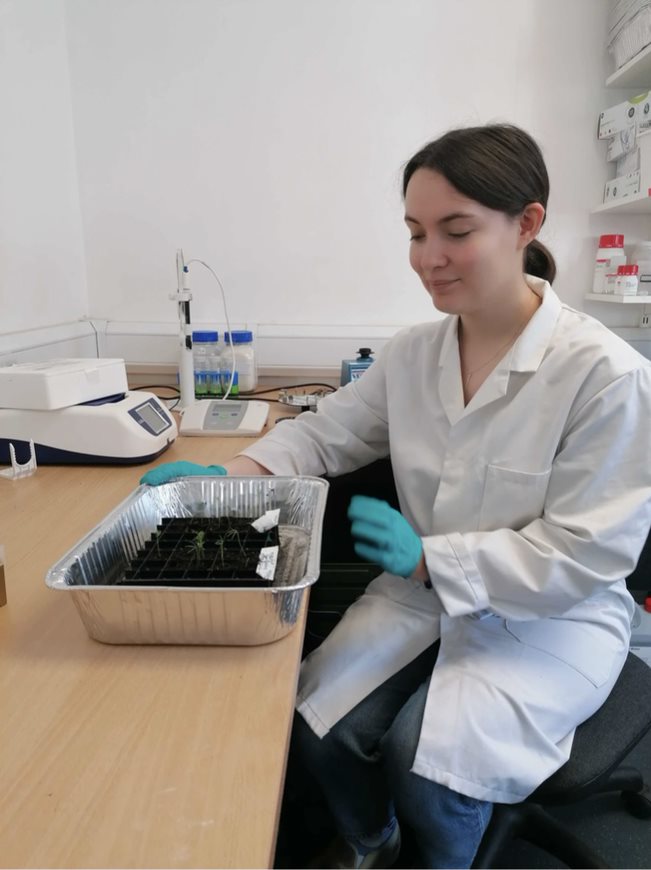 SilviBio works to produce various products that seek to enhance tree growth for the forestry industry. They are currently focused on producing products that enable the forestry industry to reduce their dependence on peat. During my time at SilviBio I worked on the product development of the SilviBio Transplanting Aid, a product aiming to reproduce the cohesiveness of peat to enable tree transplanting and PeatNoMore a product aiming to reproduce the water-retentive properties of peat. This involved small-scale growth chamber experiments and work on larger scale field trials.
SilviBio works to produce various products that seek to enhance tree growth for the forestry industry. They are currently focused on producing products that enable the forestry industry to reduce their dependence on peat. During my time at SilviBio I worked on the product development of the SilviBio Transplanting Aid, a product aiming to reproduce the cohesiveness of peat to enable tree transplanting and PeatNoMore a product aiming to reproduce the water-retentive properties of peat. This involved small-scale growth chamber experiments and work on larger scale field trials.
During my internship, I learnt a lot! I worked with Sitka Spruce and Scots Pine trees for the first time, as well as Marigolds and Tomato. I learnt a lot about peat and why going peat-free is such a challenge for growers. I also developed the ability to critically analyse pre-existing patents and gained a greater awareness of how to balance materials costs, customer needs and experimental design. Furthermore, I left with more of an idea of the things I would look for when applying for a job in terms of level of experience and how to market my skills to industry.
I really enjoyed working in such a collaborative environment. Sometimes you were working on your own to complete an experiment but often there were experiments that took 4 or 5 people to plan and complete. I really enjoyed the group brainstorming to come up with the best experimental designs and then the working in a group to complete larger-scale experiments. I found it surprising how often I could draw on my PhD knowledge, from a completely different field to make suggestions for experimental set-ups and protocols.
My key achievements from my internship were the development of new protocols for SilviBio for protein extraction and plant growth. I also aided the development of new products/ product formulations; however, these are yet to be released. Further, I found it rewarding that some of the plants from my experiments were donated to Penicuik Community Development Trust for their garden.
In the longer-term, I think that I have gained a better understanding of how I could utilise my PhD skills in industry.
2020 intake student Ellen Poot (Edinburgh) has completed her placement at RoslinCT and sent us the following comments:
My PIPS project involved researching ways to improve monitoring and production of pluripotent stem cells at RoslinCT, including writing reports, creating a business case, and disseminating findings to the wider team.
I learnt a lot about the differences between academia and industry; the way the whole department collaborated across multiple projects together, the need to consider GMP-compliant manufacturing and the regulations surrounding it, and the increased emphasis on the financial benefit when considering whether a research project should go ahead.
I was surprised to find that I did enjoy considering the financial aspects of project planning. Having spent my entire career in academia it always seemed like finances were just a barrier to research, but it was surprisingly interesting to have to decide between multiple approaches for a project where the scientific-backing for each approach was weighed alongside the financial benefit. Having the added financial consideration forced me to research outside of the original project scope, which ultimately led to an idea that was both financially and scientifically superior to the original considerations.
While the specific outputs from my projects are confidential, this internship has improved my written and spoken communication, as well as considerably improving my commercial awareness and understanding of project management as part of a team. All of these skills will be useful for future employment.
My network outside of academia has expanded, and has given me experience in industry that will benefit my career after my PhD.
2019 intake student Abigail Brewer (Dundee) completed recently her placement at GlaxoSmithKline, Madrid, Spain, and sent us the following comments:
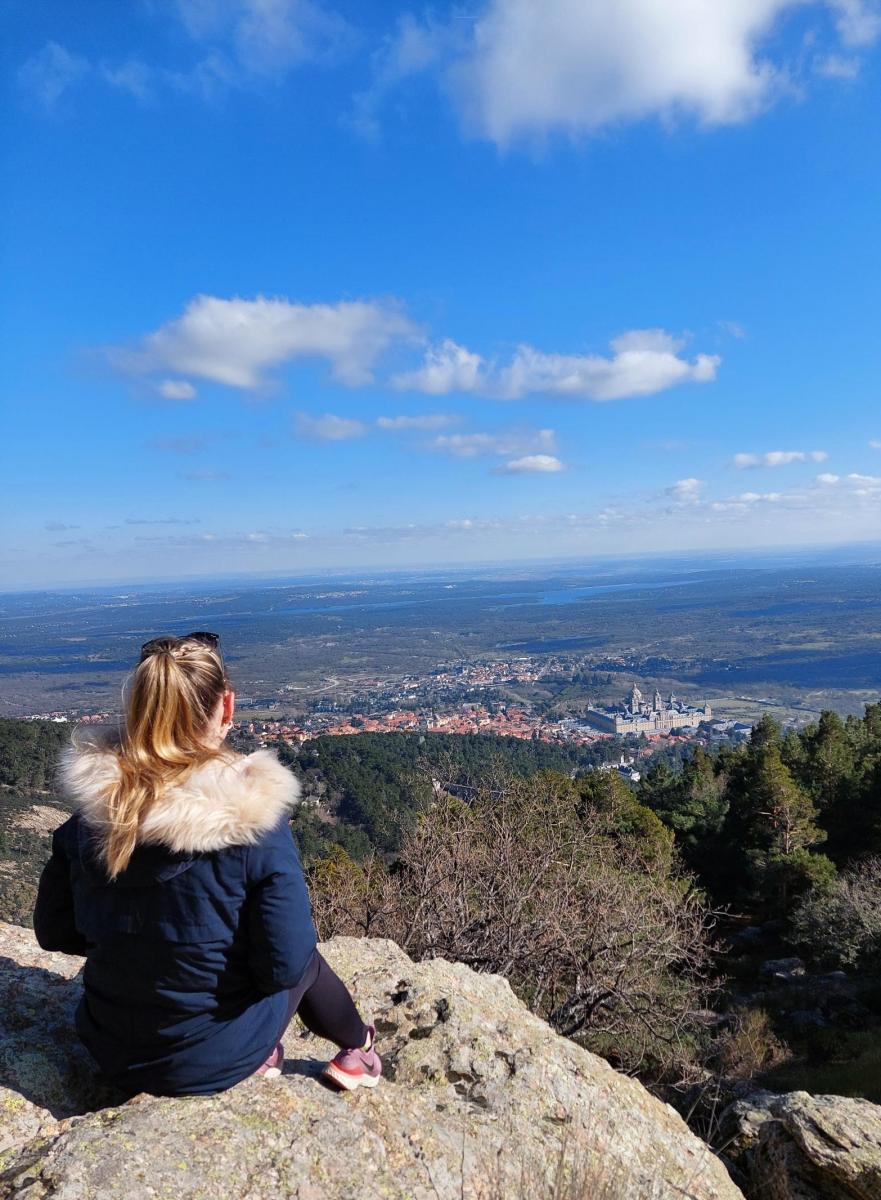
During my placement, I worked with the Global Health unit, which is a non-profit division of multinational pharmaceutical company GlaxoSmithKline (GSK), focussed on tackling neglected infectious diseases. I was based at the Tres Cantos site near Madrid in Spain and worked with the Malaria, Tuberculosis and Anti-Microbial Resistance research teams.
I was really excited to be able to learn in-depth about the biology underlying these problematic disease areas that particularly still endanger low- and middle-income populations around the globe. Additionally, it was fascinating to see the high-throughput screening methods that a leading pharmaceutical company employs to identify potential drug candidates, in disease areas that each pose unique challenges.
One surprising aspect of my placement that I particularly enjoyed was that the team was willing to talk to me entirely in Spanish! I have been learning Spanish since I undertook an Erasmus placement to Spain during my undergraduate degree so was thrilled to be able to challenge myself by talking in Spanish throughout the 3-month internship. I can definitely say that my Spanish understanding and speaking greatly improved (thanks to my very kind and patient colleagues!) and I was surprised to find that talking about science in Spanish was not as difficult as I had imagined!
Over the course of the 3-month placement, I gained a great insight into how this non-profit unit conducts scientific research and forms a valuable part of GSK. Also, I was grateful to be invited to give a scientific seminar to a large audience and now feel more confident in presenting to the private sector.
2020 intake student Anna Zolotariof (St Andrews) completed her placement at the Berlin School of Public Engagement and Open Science and sent us the following comments:
During my internship I was involved in the management of multiple projects undertaken within the Berlin School. The main project I was involved in, the IETI project, aimed to map Public Engagement throughout the Natural History Museum, including all active and inactive initiatives and the needs and barriers the staff and academics were facing. Secondary projects included the planning and organisation of high-profile Senior Round Tables and report writing and supporting lectures given by experts in the field.
I learned more about Public Engagement and the multitude of levels it includes, as well as how important it really is. From a more practical aspect, I also learned many new ways and programs that can help me with the organisation of my work, I experienced a different work environment outside of academia and laboratory-based work, as well as the pleasure of working in a highly interdisciplinary team.
I really enjoyed the brainstorming sessions we would have while planning the Senior Round Table events. At first it was challenging to feel capable of contributing, but as soon as I gained some confidence, I was able to adapt to the circumstances and think in ways I hadn’t before.
A key output of the placement was the completion of the project Mapping Public Engagement in the Natural History museum.
A 'sense of direction post my PhD studies' was what Anna said about the broader benefit of her internship.
2020 intake student Lucy Lansch-Justen (Edinburgh) shared the following about her placement at the Centre for Genomic Regulation, Barcelona, Spain:
During my internship at the CRG, I developed a new methodology that helps to better understand the development of cancer tumors under variable mutation rates. I expanded my knowledge in the field of cancer biology and learned how to handle big clinical and DNA sequencing data sets.
My colleagues at the CRG helped me to overcome challenges related to my work in data analysis. The methodology we developed will help assess clinical interventions based on tumor mutational profiles.
2021 intake student Annis Newman (Edinburgh) shared the following about her placement at the UK Health Security Agency:
During my internship I worked in the Environmental Monitoring for Health Protection team. There was a variety of projects that I worked on as part of this team, including conducting a literature review with external collaborators on how wastewater-based epidemiology can be used to detect Covid-19 in sewage and supporting in the development of surveillance strategies across the UKHSA. As a part of this work on surveillance, I synthesised several large bodies of work detailing surveillance strategies with the aim of guiding the development of the UKHSA surveillance strategy. Whilst working on this project I had the chance to work with a variety of stakeholders and individuals across the UKHSA and other government departments including DEFRA and APHA.
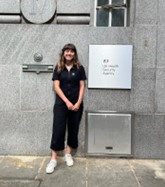 Through this internship I learnt a lot about how scientific policies are developed, from the discovery stage where a large variety of stakeholders are engaged and the scientific background is thoroughly researched, to then applying for funding from the treasury.
Through this internship I learnt a lot about how scientific policies are developed, from the discovery stage where a large variety of stakeholders are engaged and the scientific background is thoroughly researched, to then applying for funding from the treasury.
I really enjoyed being a part of a team who were all working towards the same goal and the support that this provided in my day-to-day work. The wide variety of projects that I was involved in was also very enjoyable and meant that every day was different. A real highlight was being able to go and visit the UKHSA offices in London for a team meeting where it was great to meet everyone in person!
One output that I am proud of is an illustration that I created to visualise the scope of different surveillance teams in the organisation, highlighting gaps and overlaps in the work. This illustration will be used to demonstrate what surveillance looks like in the organisation to senior decision-makers.
The work that I did with my team during this internship will hopefully play a part in shaping the future of UK surveillance and biosurveillance, helping government and associated stakeholders prepare for, prevent, or mitigate against a wide range of hazards and threats.
2020 intake student Zuzanna Konieczna (Edinburgh) shared the following regarding her PIPS at Mangorolla CIC – Creating Community Conversations - it organises I'm a Scientist, Get me out of here! – A super-curricular science outreach education and engagement activity (imascientist.org.uk)
I really enjoyed working with the IAS team and the internship provided me with an opportunity to tackle varied tasks across my time with the company.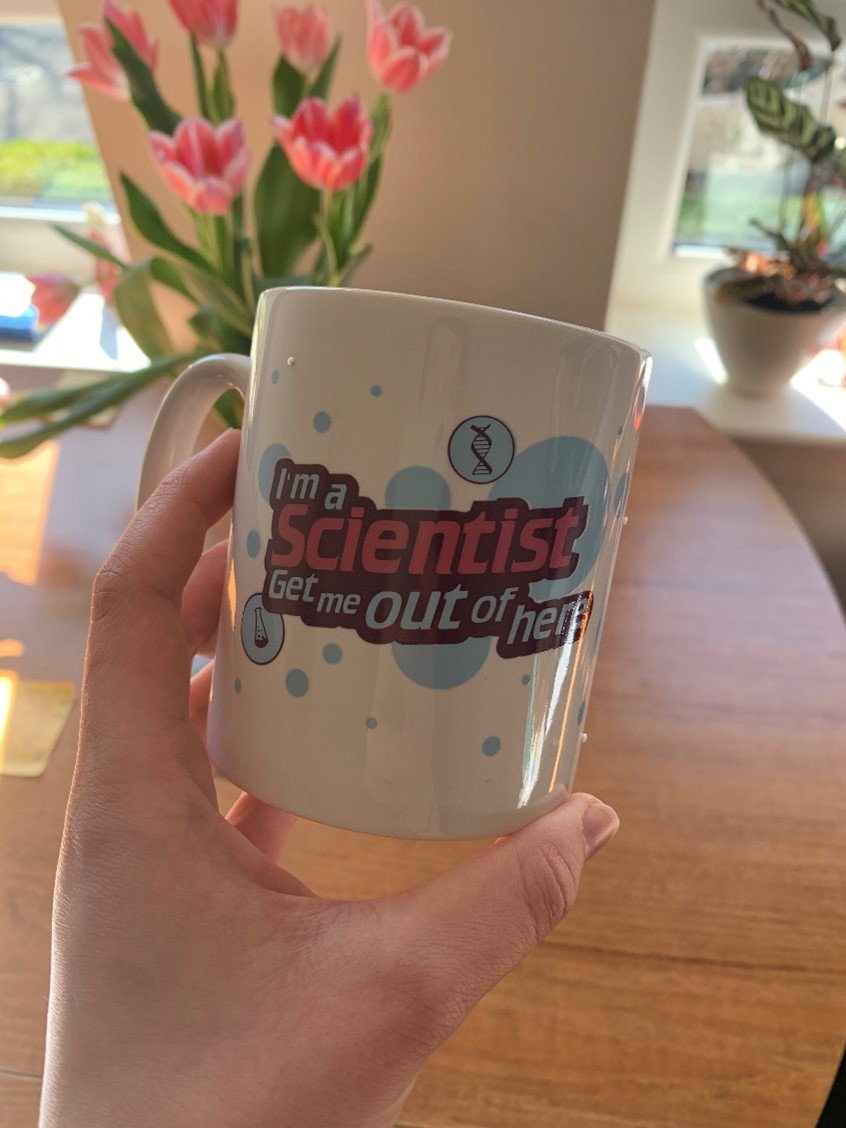
I had a great time moderating chats and getting to observe all the interactions between the students and the various scientists during the March activities. It allowed me to gain a fuller understanding of the benefits of IAS and public engagement in general. Through the research I've done later on in my placement, I've gained a good understanding of the PhD funding landscape - the findings about the number of unfunded PhD students in the UK, and how widely different the requirements and structures of doctoral degrees are were a surprise! I enjoyed establishing a network of Public Engagement leads at various universities, and I was positively surprised by their enthusiasm and eagerness to share their work with me.
I was able to produce a detailed report outlining the PhD landscape in the UK, the requirements for Public Engagement involvement, the different strategies of institutions regarding PE. The conversations I had with PE leads allowed me to identify common themes and priorities, and were helpful in establishing communication objectives and timelines that the company can use going forward.
The internship has showed me how my skills can be applied outside of the academic environment and has enhanced my enthusiasm for Public Engagement and Science Communication.
2020 intake student Kara McHugh (Dundee) shared the following on her PIPS at the UoD Botanic Garden:
During my internship I worked to produce a new public engagement and educational resource about plants with medicinal properties in the botanic garden. Over the course of the internship, using my knowledge of plant biochemistry and working with the garden curator, teaching staff from the university’s School of Education and from local secondary schools, public engagement team staff, graphic designers, and artists I produced a Medicinal Plants Trail for visitors to follow as they explore the garden. The medicinal plants trail consists of 11 decorative signs stationed at plants throughout the garden, an accompanying informative booklet, and five supplementary animated videos.
During the internship I had the chance to greatly improve my science communication skills, learning how to quickly capture an audience’s attention, and to communicate complicated ideas clearly and concisely.
I also gained insight into the process of public engagement, how to work across diverse teams of people on shared projects, and about the changing aims and roles of botanic gardens in the 21st century.
One thing I particularly enjoyed, which was a bit of a surprise to me, was getting out of my typical lab environment and thinking and talking about science in a wider context. Due to this enjoyment, I found my PIPS experience has broadened the range of career options I am interested in pursuing upon completion of my PhD.
I am very proud of the work I completed during my PIPS and am pleased to know that a tangible resource which can be enjoyed by others will now exist in the botanic garden as a result of my internship. The public communication and design skills I developed during the internship will be very useful going forward for the completion of my PhD and hopefully in my future career whether that lies in academic research or in science communication.
In addition to the transferable skills I gained by completing my PIPS, I have also made some great personal and professional connections with the people I met and worked with. The networking contacts gained from my internship have allowed me to stay informed about ongoing science communication work and projects, find volunteering opportunities, and may provide useful job opportunities or references in the future.
2020 intake student Sam Gibbon (Edinburgh) sent us the following from his experience:
I had the incredible opportunity to participate in the Bayes Centre Entrepreneurship Portfolio's Venture Builder Incubator. The programme was curated to provide PhD students and Early Career Researchers with the skills and knowledge to turn their ideas into successful companies.

My project focused on testing the commercial viability of my medical image analysis software, which takes images of the retina and computes metrics relevant to brain health. Through the programme, I became, in effect, the CEO of my own startup, and developed my skills in communication, problem-solving, and project management.
The Venture Builder Incubator also provided a £2,000 grant (to be spent on developing the business, e.g., legal fees, building a website), one-to-one support, links to investors, and the chance to win £5,000 on Demo Day.
During the programme, I had the opportunity to network with professionals within and beyond the Scottish startup ecosystem. This led to new career opportunities, partnerships, and collaborations that I am excited to explore further in the future.
Overall, my participation in the Venture Builder Incubator was a valuable experience that allowed me to gain practical experience in networking and building a startup. The skills I gained during this experience will be extremely valuable in any career I choose to pursue, and I am grateful for the opportunity to be part of such a vibrant and supportive community.
2021 intake student Michaela Wegg (Edinburgh) share the following on her experience from her placement at the University of Glasgow:

Through my work during my placement in Glasgow, I have acquired a number of skills:
- how to analyse Likert scale statement responses and how to perform a qualitative analysis; how to write survey and interview questions, how to conduct semi-structured interviews and focus groups.
- how to analyse data on the curriculum map and how to present this information in a format to be disseminated (as a presentation and as a hand-out).
- how to write a veterinary education research paper and abstract to be submitted to veterinary education conference. I have learnt how to fill out and submit ethics forms for studies involving undergraduate students.
I have also learnt how to assess veterinary undergraduate students during practical examinations.
I found it challenging entering a lecture theatre and being able to get the students’ attention at the end of lectures to hand out the surveys. This did, however, get easier with time. I also was worried about giving the presentations on ‘using the curriculum map’ and presenting my clinical reasoning research results; nonetheless, these presentations flowed better, and I felt more confident than I thought I would be.
I really enjoyed submitting the ethical approval forms, preparing the surveys and interview questions, conducting the research, and seeing the results.
I have made a help sheet for analysing the curriculum map and this will be in use at the University of Glasgow as a teaching aid to help use of the new system.
I also have written up the research findings on the clinical reasoning teaching at the University of Glasgow and I will submit this as an abstract to the veterinary education conference. The PIPS supervisors have advised that the data is also suitable for publication.
Clinical reasoning is a key skill for veterinary students despite the fact that it is not a key part of the curriculum. I hope that through this research this will encourage other veterinary universities to implement clinical reasoning teaching.
2020 intake student Łucja Kostrzewa (Edinburgh) shared the following feedback on her experience from her placement at Sense About Science:
During my internship I was primarily working on the John Maddox Prize, which is awarded every year for courageously advancing public discourse with sound science recognises individuals who stand up for science and evidence, advancing public discussion around difficult topics despite challenges or hostility. I read all the nominations, processed them, acquired missing data, and collated nominee profiles for the judges. As SaS consists of a small team, I also helped with multiple aspects of other projects, as was required.
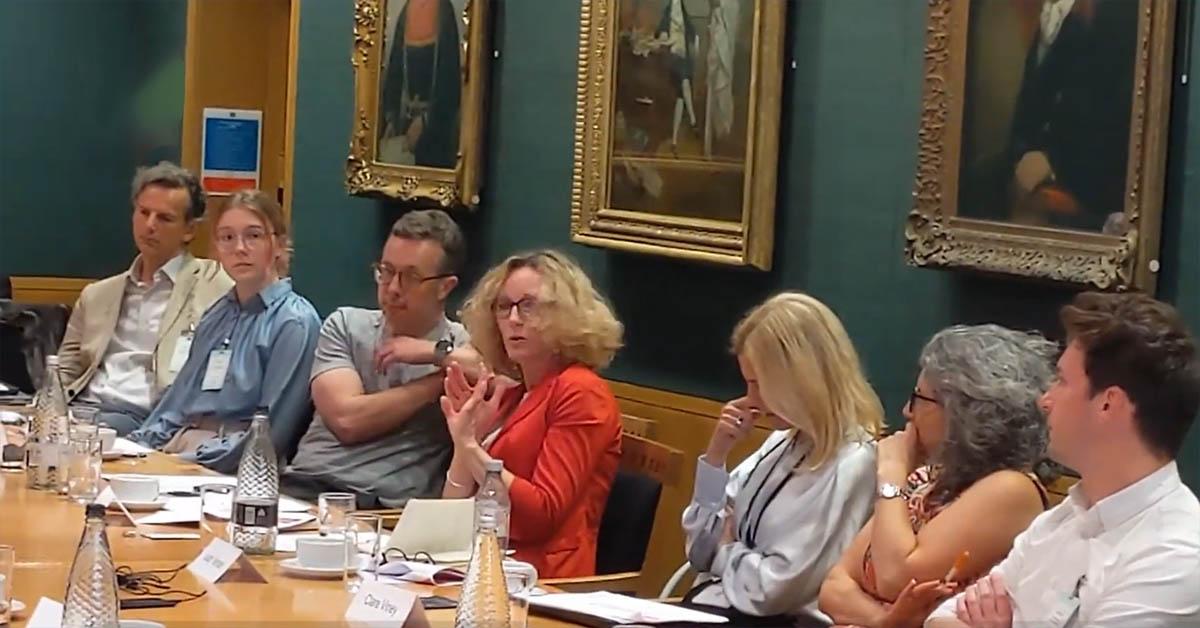
Over the 3 months of PIPS I learned about how I function when working completely remotely vs in person (I spent my first month working from home before temporarily moving to London). I also experienced working in a small team, with shared goals.
I found it useful that my workload being monitored and managed, as well like bonding with the team through shared work and lunch breaks. I also liked being able to contribute to various projects based on my availability and interests – I could volunteer to help during the weekly meeting and the tasks would be assigned to me after a check with my manager. One thing I found challenging was interacting with “important people” – interactions with superiors or potential collaborators seem to be a lot less formal in academia than in policy or journalism.
I have gained experience communicating with various groups (not only other academics) on science-based topics, often controversial ones.
I expanded my view of what types of work I enjoy and what I am good at – it turns out that working on a PhD has provided me with critical thinking skills and an ability to problem-solve beyond my research area. I also got to know the ins-and-outs of a tiered small charity structure as opposed to academia or a bigger company.
2019 student Eleanor Stroud (Aberdeen) shared the following feedback on her PIPS at the The Habitat People:
I shadowed our manager, David, to meetings with clients, assisted with practical conservation and habitat restoration activities, assisted with producing material for the website, newsletter and blog, and learned how to undertake habitat surveys.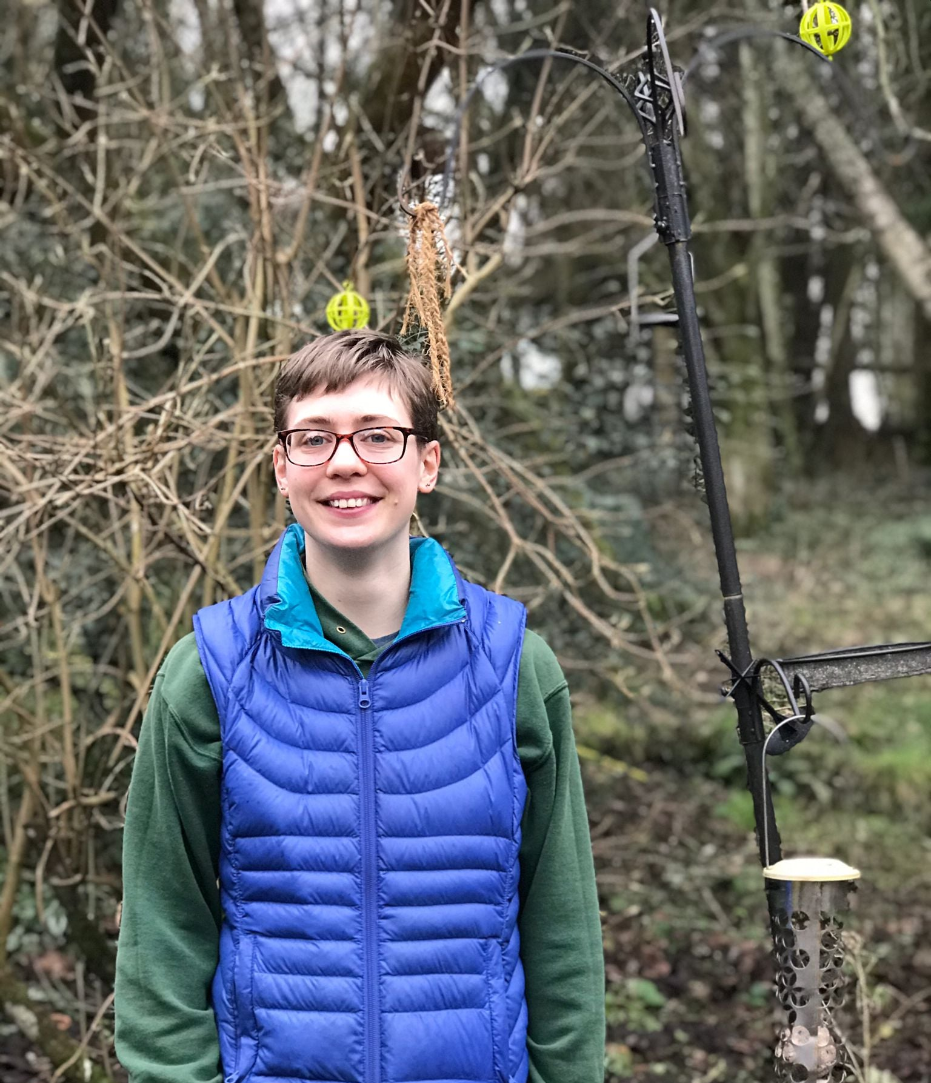
I learned a significant amount about the carbon sequestration industry, including the surveys and statistics involved as well as the kinds of clients who are usually interacted with. I also learned about online communications, website design and content production.
I particularly enjoyed the practical work, as it was good to be able to see the theories and techniques I have read and be educated about put into action.
Experience with science communication- engaging with the blog writing in particular got me familiar with communicating with a broader audience and how to reach out to specific groups of people.
A more comprehensive understanding of not only the rewilding and carbon sequestration sector, but also the factors required and the challenges facing a small business.
2019 student Jack Armstrong (Edinburgh) shared the following feedback on his PIPS at Epilepsy UK:
My role was to organise and analyse data from the most recent Epilepsy Research UK survey. This involved plotting a geographic heat map of participant postcodes, ensuring the widest coverage of participants; reading and categorising responses, attending steering group meetings and listening to the feedback from neurologists, and generating graphs showing participant distribution based on age, sex, profession, etc. I spoke and listened to the stories of many people with epilepsy and gained insights from other neuroscientists who are on the forefront of epilepsy research.
I’ve developed a better understanding of organising spreadsheets and analysing large, intricate datasets. After reading over 5500 responses throughout the internship, I’ve learnt about the wide spectrum of experiences people have suffering from epilepsy; from bullying in school to the sudden death of a relative. I’ve learnt how this type of research helps with gaining more funding and how a well-designed survey can guide future scientific investigations.
I enjoyed working out how to convert postcodes into a map graph of the United Kingdom. Colleagues from the charity were very pleased and said that the graph saves them days of additional work. Learning about sudden unexpected death of an epileptic person (SUDEP) counted towards a challenging aspect of the experience.
I’ve acquired computer and organisational skills during my analysis of the survey. I’ve developed a better understanding on how charities gain funding and how they decide which research to fund. Also, I conversed with many other neuroscientists, expanding my network, and learning about some of the career opportunities within and outside of academia.
2020 student Josh Richards (Dundee) sent the following feedback on his PIPS at the National Park Service - Sonoran Desert Inventory & Monitoring Network
The goal of the Sonoran Desert Network is to collect and analyse data, then share information with the parks to help them make decisions on how to protect key park resources.
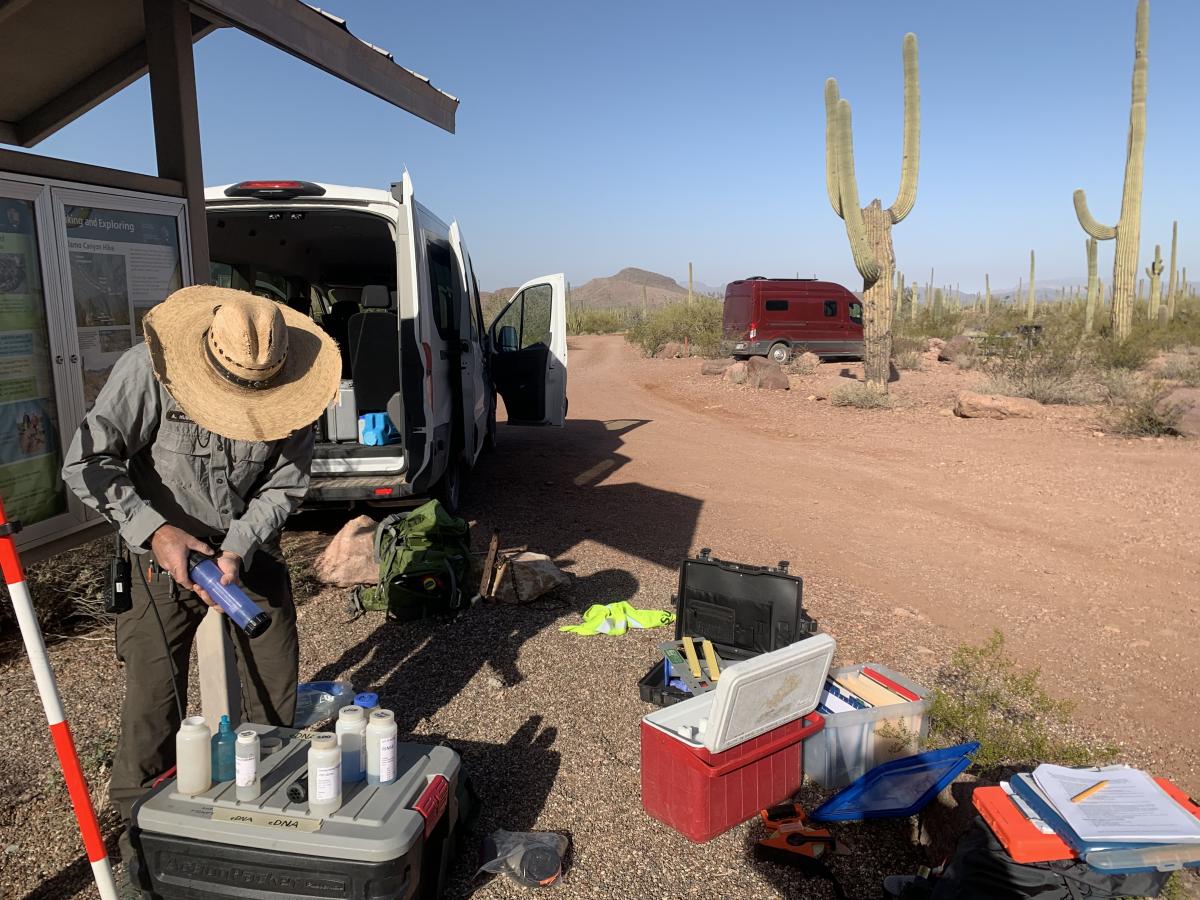
My project aimed to establish a protocol for the collection of environmental DNA. Attempting to confirm the presence of elusive wildlife (e.g. Jaguars) but also monitor diseases (e.g. Chytrid Fungus, Ranavirus) which threaten native species of the Sonoran Desert.
While developing the eDNA protocol was my primary focus, I was also able to help with projects such as:
Mapping vegetation, deploying wildlife cameras, monitoring water quality, surveying the Rio Grande using RTK technology & saving endangered turtles on the US / Mexico border.
Through this internship, I was able to learn several new skills, gain an appreciation for unfamiliar disciplines, collaborate with fantastic scientists from other fields, and see some incredible parts of the United States.
Gaining access to water in the desert can require quite a bit of work. Most sites required navigating and hiking several miles in 40 ℃ heat, carrying lots of equipment, sampling and then safely transporting the samples back to camp. I really enjoyed this aspect of the project, although challenging, it was very different to normal lab work.
The protocol developed was integrated into the operations at the Sonoran Desert Network. I helped to train current employees on how to carry out the work, and the sampling has continued after my internship ended. We hope that this protocol will be used for many more years and extended to other monitoring networks in the National Park Service.
The information gained from eDNA can also help conservation efforts going forward in ways which conventional camera traps cannot. The results from the eDNA sampling could have a real impact on operations in the parks. Knowing that endangered species are present in parks would encourage measures to be implemented to protect those species.
2020 student Olivia Fraser (Edinburgh) sent the following feedback on her PIPS at ENZA Zaden:
During my internship I investigated new genes in Lettuce conferring resistance to Bremia lactuca. Bremia is an oomycete pathogen that causes downy mildew in lettuce. It causes huge postharvest losses, therefore it is crucial for lettuce breeding companies to develop new resistant lettuce cultivars to overcome Bremia.
I worked on a new variety of lettuce that was found to have resistance to all Bremia races. The region responsible for resistance was narrowed down via fine mapping and I used virus induced gene silencing (VIGS) to confirm the genes conferring resistance. I analysed the sequence of the genes responsible to determine their potential roles and protein structure. I also optimised the GVE (genetic variation elucidation) process wherein detailed transcript data for the gene of interest is amplified and sequenced. Finally, we successfully stacked our new resistance genes with existing resistance genes through crossing and fine mapping to produce a new variety of lettuce with broad spectrum and long lasting resistance to Bremia.
Over the course of my internship I have learned to use new bioinformatics and protein modelling software. I have learned a lot about the commercial development and production of new resistant varieties of crops and what is prioritized in this process. I was also able to visit the breeders that partner with ENZA and gain insight into what they do. Most importantly, I was able to expand my knowledge of lab practices and plant science in general and experience working in a company.
I was pleasantly surprised by the amount of freedom and flexibility researchers in the R&D department (where I worked) at ENZA had. I did not know exactly what to expect when I decided to do my PIPS in a crop development company, but I had assumed that there would be a lot less freedom for researchers.
Talking about concrete outcomes from the placement? I am an inventor on the patent for the resistance genes that we identified.
This internship has enabled me to experience working in a company in a field I would be interested in working in after my PhD. It has also provided me with some valuable contacts in the field.
2020 student Emily Haley (Edinburgh) shared this feedback on her PIPS at the Royal Botanic Garden Edinburgh:
During my internship at RBGE, I was involved in several different conservation genetics projects. My first project was to determine if a new bit of equipment used to give an indication of plant health, was going to give meaningful data for plants in the field. This involved taking measurements both in the field and in the gardens and doing data analyses. The other main project I was involved in was helping come up with a list of criteria that could be used to score native rare plants in the UK to work out which species should be prioritised for conservation. I was also involved in organising the European Conservation Genetics Conference.
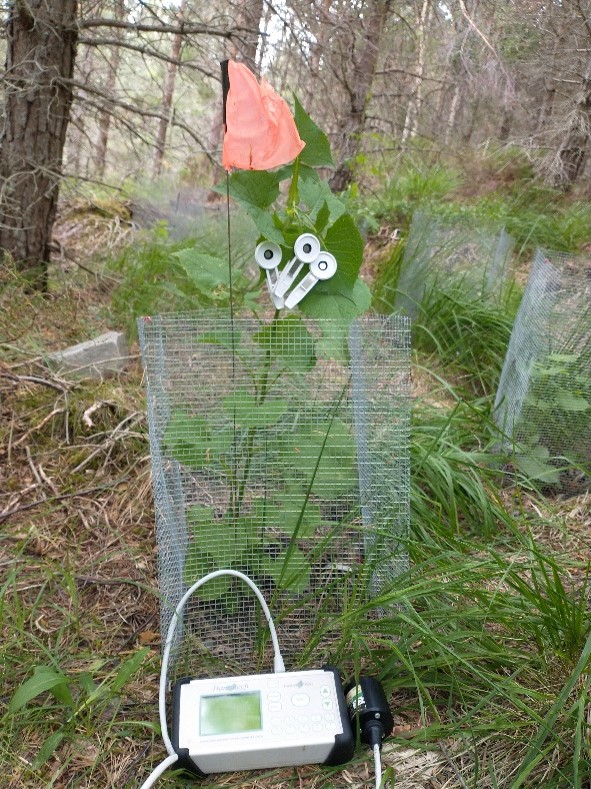
Taking measurements from a translocated Alpine blue-sow-thistle (Cicerbita alpina) plant in the field.
When creating the scoring system for prioritising species for conservation, I found there were so many potential factors for consideration (from ecological or social impact to how feasible it is to translocate into the wild), some of which I hadn’t previous thought about. These should be accounted for to fully understand the impact of conserving a species.
I enjoyed being able to experience a range of projects that a conservation geneticist at RBGE might be involved in. This meant I was able to get hands-on experience with plants in the field and in the botanic gardens, but I was also able to get involved in long term conservation projects that required a lot of thought about the potential consequences of conserving a species.
As well as learning a lot about plant conservation, I was also able to see what types of roles are available for people working in conservation, which I can use to inform my future career decisions.
2020 student Javier Sanchez Utges (Dundee) completed his placement with the Association of British Pharmaceutical Industry (ABPI) and sent us the following input:
 The project revolved around the improvement of the already excellent ABPI schools website, which can be found here. I was working on improving it following a feedback report provided by the Association of Science and Education (ASE) in order to obtain the Green Tick, which provides guidance on the suitability of a potential resource and how the materials might support teaching and learning. This improvement involved the generation of illustrations, graphs, and diagrams, the creation, edition, and deletion of scientific text from a range of subjects to a variety of age groups, the creation of videos and interactive quizzes, amongst others. To do this, the usage of different platforms and software were necessary, e.g., Adobe Illustrator, Umbraco, Typeform, etc.
The project revolved around the improvement of the already excellent ABPI schools website, which can be found here. I was working on improving it following a feedback report provided by the Association of Science and Education (ASE) in order to obtain the Green Tick, which provides guidance on the suitability of a potential resource and how the materials might support teaching and learning. This improvement involved the generation of illustrations, graphs, and diagrams, the creation, edition, and deletion of scientific text from a range of subjects to a variety of age groups, the creation of videos and interactive quizzes, amongst others. To do this, the usage of different platforms and software were necessary, e.g., Adobe Illustrator, Umbraco, Typeform, etc.
In terms of technical skills, I learned how to use platforms such as Umbraco and Typeform. The former is a platform to create, edit, and manage websites. It is a great tool and skill to have. Typeform is a software specialised in creating inline questionnaires or surveys. It is highly dynamic and diverse. Additionally, I furthered my Adobe Illustrator skills to created new, and edit already existing figures and diagrams.
I also improved my teamwork abilities, as I was very closely working with a team on the same project, with multiple calls a day, ongoing feedback and brainstorming on how to approach some of the comments. On top of that, I also got better at managing the amount of detail disclosed on a scientific text, depending on the age group of the audience it is targeted to, e.g., simplifying texts aimed at lower aged audiences 5-11, or 11-14, and elaborating on the complex details for audiences 14-16 and 16+ years old. The distribution of content in pages, as well as the use of infographics to facilitate the understanding of the message is also another one of the key learnings of this internship.
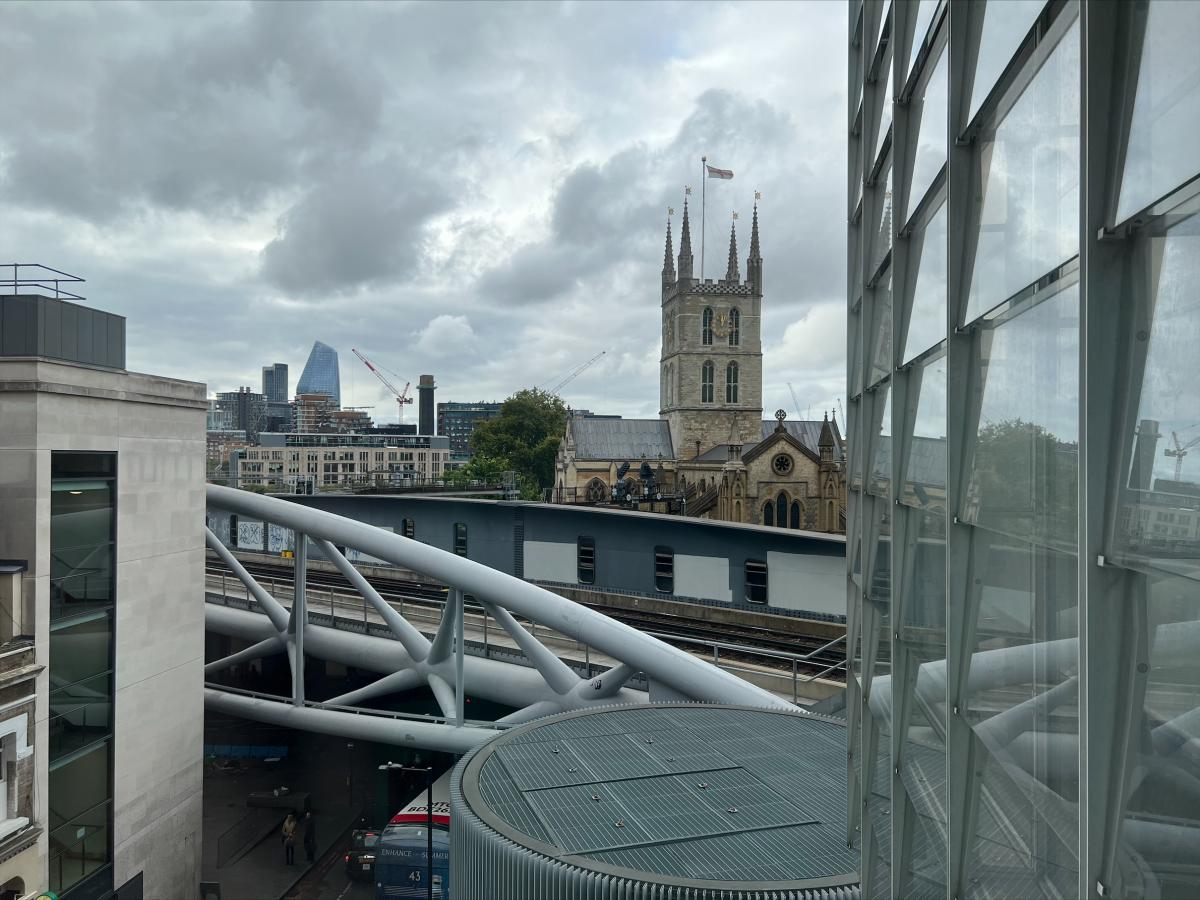
I really enjoyed the experience of living in London, commuting in the tube every morning, and experiencing the rush and the busyness of central London. Moreover, I got to work in two different ABPI offices: in Victoria, and in London Bridge. The offices were open space and had phone booths-like spaces for calls, sofas, and chairs to think, and relax and great facilities and snacks, coffee, tea, juices and water. The ambience in the office was ideal to boost productivity and efficiency. Attending meetings that were not directly related to my work in the internship was great to make me feel like a real member of the company, and not “just an intern that is here for some weeks”. I felt involved and engaged with everything that was going on. Moreover, I had the opportunity to join a work day out and have food, drinks and chats in an informal environment with my colleagues, as well as to attend staff huddles where we all got together and learnt about Men’s and Women’s health.
Hopefully, thanks to my work, the ASE will award the Green Tick to the ABPI schools website resource. My work has been instrumental for that to happen and is a great outcome to report to future employers.
The networking. I hope the people I met, the conversations I had and the good work I did during this internship will provide me with a good word or reference, in the future, should I need it to enter industry.
2019 student Megan Sumoreeah (Dundee) shared the following comments on her placement with Prime Global:
During my time with Prime Global I undertook tasks required of an account executive and an associate medical writer. This gave me the opportunity to experience different aspects of the medical communications sector. Tasks ranged from identifying a client’s needs, budget development and minute-taking to data-checking, writing abstracts and producing top quality deliverables, including scientific communication platforms, and congress posters.
At Prime, I further developed my interpersonal, time management and organisational skills outside of the academic setting, which has been hugely beneficial. However, the most important thing I’ve learned is how to assess my own capacity and reach out when in need of support on a task.
I really enjoyed the collaborative nature of the work! I worked on accounts in kidney function, cancer research, COVID-19, eczema, diabetes and more, with people from industry, health care professionals, scientists, event management, accountants. The breadth of science as well as the variety of jobs and people I came into contact with over my internship was fantastic, every single day brought something new.
I produced written content and supported development for a poster presented at the 2022 American Society of Clinical Oncology (ASCO) annual meeting.
The connections that I built at Prime Global, as well as the opportunities my internship granted me, have given me greater insight and direction for what will lie beyond completing my PhD.
2019 student Mihaly Badonyi (Edinburgh) shared the following comments on his placement with the Company of Biologists:
I analysed citation data from the Web of Science primarily to forecast the 2020 impact factor for the Company of Biologist’s journals, but also to identify strengths and weaknesses in terms of scientific topics and the journals’ publication strategies. In a separate project, I was tasked with creating a poster about ethical issue statistics, e.g. submissions from which countries result in the most problems such as manipulated figures, and how long these issues took to resolve.
I have learnt a great deal about how academic publishing operates to maintain the quality of peer review. I also got to learn about the organisational structure behind scientific journals and the hierarchy of the editorial management. This experience has given me the opportunity to think about what to do next should I decide not to pursue an academic career. Being an editor at a well-regarded scientific journal would allow me to stay on top of the knowledge in my field and to help maintain the high standards of peer review.
Although the analyses my mentors asked for appeared simple to begin with, they nonetheless represented complex data with their own biases that were not intuitive to me at the start. It took a number of conversations with the editors to get me to a point where I fully understood the figures that should go into the analyses and how the data should be subset. As a result of these challenges, I learnt new skills that I could transfer to and implement in my PhD research.
The work I carried out at the Company of Biologists resulted in various statistical and graphical summaries in many different formats, such as .ppt, .doc, and .pdf. Although these documents are confidential, a future employer would nevertheless be interested in my experience of working with a publishing team and what I learnt about the editorial process. One skill I have learnt very well is web scraping, the process of obtaining and cleaning information hosted on web pages and bringing it into a human readable/interpretable format.
I believe there are two main long-term potential benefits of having done the internship at the Company of Biologists. First, it has completely changed the way I look at peer-review by introducing me to the journal’s side of the process. This experience has helped and will continue to help me write and prepare my own manuscripts for publication and navigate the peer-review process. Second, should I choose to leave academia after my PhD and consider a career in publishing, I am certain the internship will have increased my employability for such a role.
2019 student Tommy Schmidlechner (Edinburgh) completed his placement with Social Security Scotland and shared the following insights:
While working at the operational research team, my project was to improve how model assumptions translate into probability distributions, and to perform structural improvements to the Monte Carlo simulation that is central to most of the models. This involved participating in expert knowledge elicitation, researching probability distributions, doing lots of maths and even more programming.
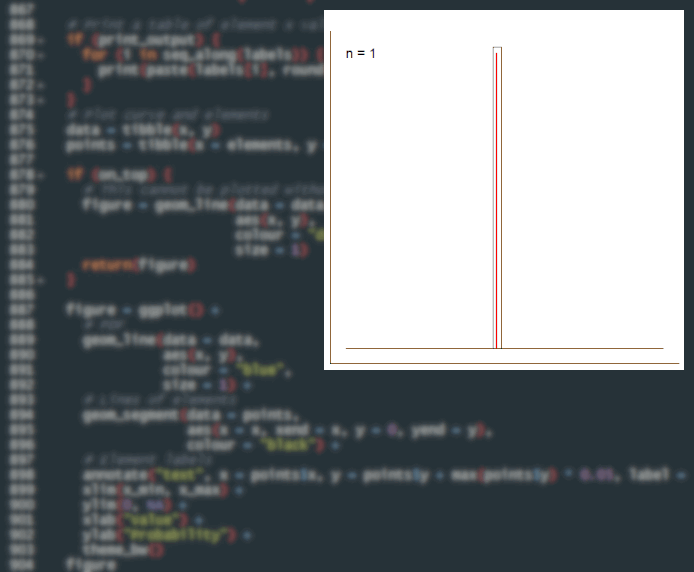
The gif is a histogram of a growing sample, showing the mean and the 0.05 and 0.95 quantiles (90% confidence interval) as red lines. It demonstrates how random processes become deterministic with large numbers.
During my internship, I learned how to work as a team of programmers and, also, of the importance of documentation. In the past, I have always created code solely for my own use. Here, everything I made was for the benefit of others, and I learned to tailor my work according to others’ needs. I also learned using R, having always been a Python user.
I really enjoyed how, despite being an intern, the team recognised my own expertise and even asked for my advice in those areas. It was nice working in a team where everyone can play to their strengths.
I’m also very satisfied with what I achieved during my internship. I developed a new set of tools that will benefit the whole team going forward, as well as finding a completely new method of doing things more efficiently, while solving many of the existing problems the team faced. I’m glad to leave knowing that I made a difference.
Being in a new environment broadened my horizons and helped me decide what I want from my future. The work I did also shaped the way I think about data and random processes, which will surely come in handy!
2019 student Crystal Silver (Aberdeen) sent us the following input on her placement with Hymans Robertson:
My role was in a new Design Experience team within Hymans Robertson LLP, which was focused on creating new products for the company which were design-led and informed by UX (User Experience) research. My main responsibilities were to help research best practices for setting up a UX research repository, begin the groundwork on this, and to advise on how to build upon the level of ethical maturity in current research practices. I both revised existing research documentation, and created additional supporting documents which will be used in future research. I also created a multimedia report of a UX research project, which was shared with stakeholders and motivated a further round of research. Please note: I cannot divulge specific details of projects I worked on as these are confidential.
I learned to distil research into the critical components that a corporate client is interested in. Working in a fast-paced, agile design-led team meant I had to both think on my feet and compose deliverables which were concise and had tangible outcomes.
I really enjoyed the level of responsibility I was given within the team; I felt like I was able to really get stuck in and contribute from the outset. I very much enjoyed working in the dynamic environment where you must think about turning a project around quickly, whilst maintaining research integrity and the quality of outcomes. Tailoring research outcomes to a new audience (i.e., corporate client) was beneficial for potential future career opportunities in industry.
I was very lucky in that I think I had multiple achievements that I could share with future employees: creating standardised documents/templates that were to be used by the company moving forward, starting the groundwork on the establishment of a large research repository, and delivering a research report that was shared directly with stakeholders.
I think having professional industry experience during my PhD will really benefit me when I start to look into my next career move. Being immersed in a corporate environment and learning quickly how to effectively work in that environment gives more confidence in being able to transition into industry if that is what I decide to do. Building working relationships with contacts in industry has expanded my professional network beyond academia.
2019 student Emma Hobbs (St Andrews) completed her placement with Bright Ascensions Ltd and the shared the following:
I supported early development of a software solution to facilitate interactions between three types of organisations: those which provide space missions, those which provide space services and those which use those services. This included an introduction into systems engineering, specifically identifying common and unique requirements of end users from each type of organisation to facilitate the design of a single end-point user interface (UI). To explore the practical implications of my research, I developed a prototype multi-platform UI using the Flutter framework including exploring the suitability for interactive and informative presentation of space mission data within a Flutter deployed UI.
Previous experience of presenting my work in my area of biology to other biologists from other fields is invaluable. The ability to find a common language for presenting and summarising complex and abstract ideas to non-experts is a highly sort after skill that translates to any discipline or topic.
I had initially believed that completing a placement in the space industry would present me with an insurmountable learning curve. In reality, experience of working on an interdisciplinary PhD project which frequently involves learning about new topics and methods enabled me to quickly identify where to retrieve background reading from, recognise when there were gaps in my understanding, and avoid red herrings.
The design and development of a UI guided by client requirements built upon my previous experiences in designing and producing protein constructs for clients. Therefore, I reinforced and gained further experience in system engineering to establish and identify a client’s needs and specifications to rationally design a product that the client can use to achieve their aims.
Having previously worked in large international companies, I found it a vastly different experience working in a company of less than 50 employees. The general scope of individuals day-to-day tasks was broader and more varied in the smaller company compared to larger companies which generally expect high specialisation and narrower focus. From these experiences, I know personally I am more likely to find greater enthusiasm for my job in a smaller company than a large international.
2019 student Dominika Kwecka (Edinburgh) sent in this feedback for her placement with Oxford NanoImaing (ONI):
During my internship, I learned a lot about fundamental fluorescence microscopy and I finally got immersed into super-resolution microscopy which I was hoping to do for a long time. However, this internship was not only fantastic for the science but also I learned a lot about how a company works and what the different departments do.
I particularly enjoyed being involved in different aspects of the company. I got to chat to different teams such as the Product Development, Business Development, Hardware and software, etc., which provided a great opportunity to understand how a company works and caries out commercial activities. I found the environment provided by the company to be very enriching as it was focused on continuous development of skills and attributes, not only scientifically, but also personally.
Before starting the internship I had never experienced super-resolution microscopy as it was an interest that had arisen during my PhD by doing simple immunofluorescence assays. This internship helped me develop my microscopy skills and taught me a lot about super-resolution. Additionally, it provided me with the experience of working in industry which is very valuable as I may consider joining a company in the future.
This internship has helped me expand my network in the field of microscopy which I hope to work in after my PhD.
2019 student Ben Read (St Andrews) recently completed his placement with LifeArc and shared the following comments on his internship:
My PIPS was spent at a non-profit company called LifeArc; whose overall goal is to aid researchers (both in industry and academia) in bringing their ground-breaking scientific ideas to light. I worked as an analyst within LifeArc’s Opportunity Assessment Group (OAG) at their London office. Being an OAG analyst was a highly dynamic role where I was involved in several projects aligning with LifeArc’s core values and translational challenges.
It was our job to provide insight into the scientific and commercial viability of the latest biomedical and biotechnological products/technologies that are currently in development, in order to help inform and shape the future of LifeArc’s investment decisions. This required use of competitive intelligence databases, interviews with key opinion leaders, and our underlying expertise acquired through OAG’s incredibly diverse background in the field of life sciences!
This fantastic opportunity gave me a much-needed bigger picture idea of the drug discovery process. For example: the processes/money required to translate from bench-side to the clinic, an understanding that good ideas do not necessarily equate to good products, or the patient impact of the products that may arise from your research (and much, much more).
Conducting the product landscaping for areas that LifeArc were looking to move in to was quite exciting. Being able to see the range of products available/currently in development and their clinical progress before such results were made available to the general public made me feel like I really was witnessing ground-breaking science…without having to do any of the lab work myself!
I can’t get into the specifics as these are strictly confidential, but my work demanded a quick adaptation to become a functioning member of the OAG team. I honed my scientific writing skills and have vastly improved my ability to work on multiple, often unrelated, projects.
In academia, or at least when it is the only environment you have experienced thus far, it is easy to fall into a state of tunnel vision – where you only think about your project and its immediate goals/implications. However, exposure to science outside of the lab has given me a wholistic understanding of how the industry, particularly small start-up companies, operates in the real world outside of the academia bubble.
2019 student Alice MacAulay (Edinburgh) completed her placement at EnginZyme, and shared the following comments on her internship:
I worked in the enzyme engineering team at EnginZyme to build on a successful pilot project and find/engineer a superior enzyme for the production of the rare sugar kojibiose which met process specifications.
I gained experience of R&D outside academia working in a small team to deliver on a specific project. Being involved from the start of this phase of the project, I was able to learn about the process of planning a project, setting objectives and tracking the progress of a project. I learnt how important communication is when working in a team and the necessity to coordinate with other teams/projects to ensure equipment and resource needs are met. I had the opportunity to use automation to process samples in high throughput generating a large amount of data. I learnt the importance of good data management to ensure results were correctly processed and easily accessible for analysis and future projects.
Some of my views about working in industry were proven wrong; for example, you can still have some freedom and your ideas can help shape and influence the direction of a project.
The opportunity to feedback to the team I worked in to give an outside opinion on the things they do really well and where they might be able to improve.
I expanded my network which will positively impact both my PhD and future career search. I gained experience of the roles available in and structure of a small biotech. This gave me an insight into roles both within and outside of the R&D team. Now I know I would like to apply for a role in a small biotech company when I finish my PhD.
2020 student Mette Juhl Tollervey (Stirling) completed her placement as a UKRI BBSRC intern, and shared this with EASTBIO:
During my internship I helped to develop a portfolio of case study materials capturing the varied topics, geographical locations and impacts of research supported by the GCRF and Newton fund. This initially involved performance of gap analysis, identifying both locations and strategic priority areas not represented by the current case studies. I reached out to and interacted with both internal and external stakeholders to develop my approach and style of case studies as well as gather the relevant information in order to complete this. Finally moving forward to completing a series of summary impact case studies and disseminating the work I completed to the wider team.
During my placement shifted my thinking away from impact being the outcomes of research projects to its wider ramifications, i.e., what changed because it was performed. Instead, we looked to focus on political, social, or economic benefits of the research which may not even result from the scientific output but rather the ‘softer’ aims and activities of research. Furthermore, while this work helped to develop my scientific communication skills, distilling information to its most salient points, it also introduced me to the various stages of grant application from conception and design to awarding and reporting processes.
The BBSRC approach to the placement was very flexible. They allowed me to work remotely as well as (initially) part-time. This enabled me to take on the placement while also meeting unavoidable and inflexible commitments (i.e., sampling points) within my PhD work. While this was of benefit, I found transitioning between PhD and PIPs work a challenge, and development of working relationships was slowed due to it all being virtual. However, I had the opportunity to visit their offices in Swindon for a week, something that was highly enjoyable. Equally, working alongside another PIPS student was really beneficial to the whole placement.
One achievement and output I could share with future employers would be me experiences, understanding and approaches to capturing and writing about research impact. Developing these case studies was done with the aim of creating a repository on materials that could be adapted and used in a range of situations and for a range of audiences. Hopefully with their future use they can highlight the benefit and positive impacts funding internationally collaborative research has for a rage of global challenges.
2020 student Emily Charlton (Edinburgh) completed her placement with the Immunology service, Blood Sciences, NHS Tayside; her comments are below:
At the Immunology service at Ninewells Hospital, Dundee, I validated an immunoblot assay for the detection of anti-neutrophil cytoplasmic antibodies which are associated with small vessel vasculitides. My project involved running patient samples on the assay and comparing the results to other diagnostic methods. I collated the data into an assay verification report and updated the laboratory documentation. My project allowed the assay to be integrated into the routine workflow of the service and brought the diagnostic pathway in line with established guidelines.
I particularly enjoyed studying the immunoblot results and considering the advantages and disadvantages of the assay, and for which patient samples the assay would be most useful. During my placement I learnt a great deal about the role of Clinical Scientists, and the experience I was provided with will be very valuable if I decide to pursue a career in this area.
2019 student Letizia Delle Vedove (Aberdeen) completed her placement with IPG Health - McCann Health Medical Communications; this is what she communicated to us:
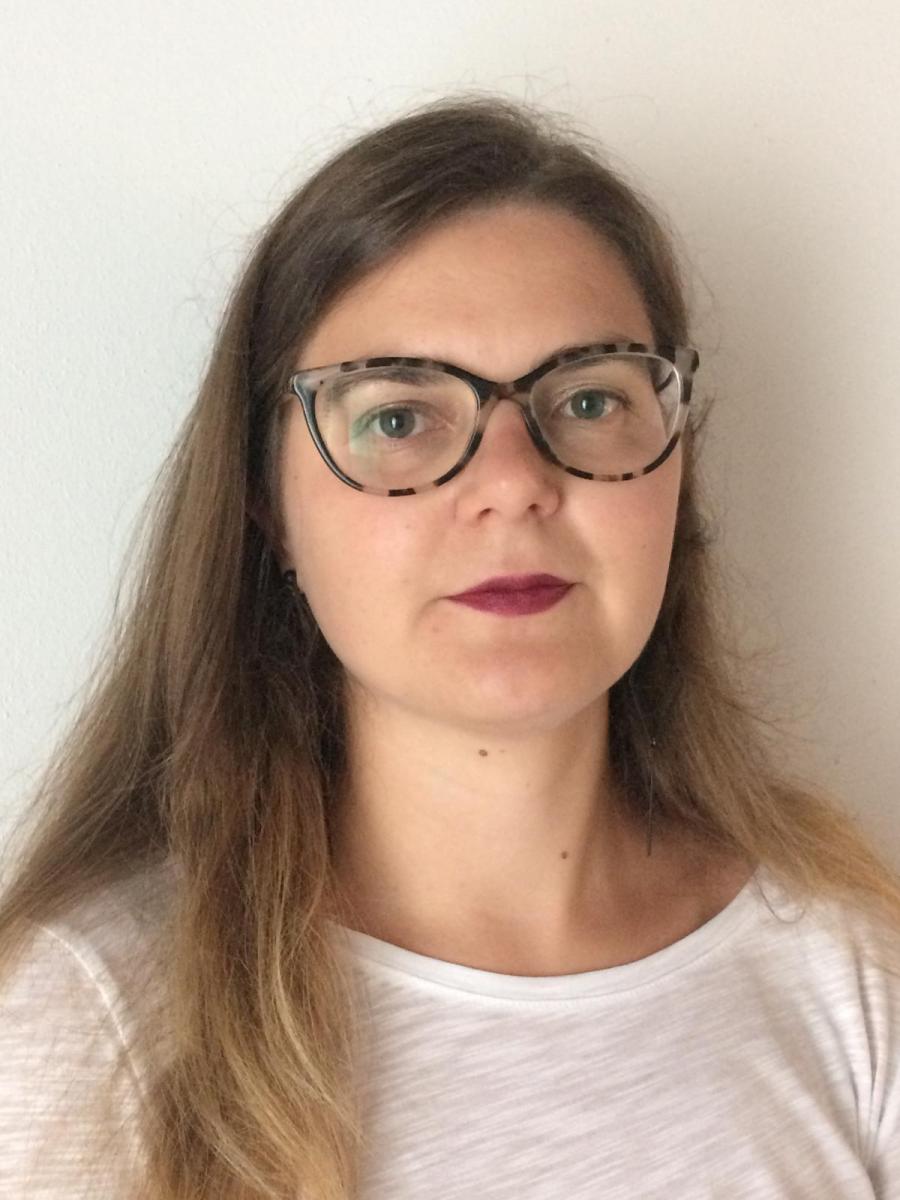 I carried out my three months internship with two of McCann Health Medical Communications agencies, CMC Affinity and CMC Connect. The medical communications (med comms) environment is very dynamic, and I was involved in a variety of projects for the clients (for both publications and medical affairs purposes), and for the company’s internal needs. I also had the opportunity to better understand the dynamics between client services and the clients, and better understand the business model of this industry.
I carried out my three months internship with two of McCann Health Medical Communications agencies, CMC Affinity and CMC Connect. The medical communications (med comms) environment is very dynamic, and I was involved in a variety of projects for the clients (for both publications and medical affairs purposes), and for the company’s internal needs. I also had the opportunity to better understand the dynamics between client services and the clients, and better understand the business model of this industry.
I thought it would be challenging to carry out this internship remotely, but it wasn’t. Because the company has offices spread across the globe, the company has a good tradition in managing teams whose members are not all in the same location. Even though I worked from home (Aberdeen) for the Glasgow office, I had the opportunity to work with line managers and colleagues mostly based in the US, Canada and England. Training and induction sessions were scheduled in such a way that colleagues from different time zones could attend at the same time, and interact with each other. I think this added to the learning and working experience, as people from different countries had different experiences and insights to share.
I feel like I learnt a lot during this internship, and greatly improved skills such as communication, writing and team work, all of which will be useful for any future career I might choose."
2019 student Hesho Shaweis (St Andrews) completed her placement with Lighthouse Laboratory and sent us the following feedback:
"I worked as a laboratory scientist at the Glasgow Lighthouse Laboratory helping with diagnostic testing in response to the coronavirus pandemic. I was involved from extracting viral loads all the way through to final PCR testing to confirm and validate each individual test.
I learnt a variety of things, firstly how quickly such a critical response laboratory can be set up and the tenacious organisation it must follow to meet highly tight demands. I also learnt how laboratory scientists can work together on large-scale projects, each focused on one area of a long pipeline. It also opened my eyes with regards to the direct impact scientists can have on the public; usually there appears to be a slight disconnect between academic research and direct public impact.
It was extremely challenging working in an environment which required full PPE and long shift hours. This was certainly a physically demanding role. However, what made it extremely rewarding was the community that we built together as colleagues, which motivated us to work harder and take pride in our roles.
Coming from a research background, I was immediately interested in how the testing pipeline worked. I informed my supervisors that I would like a chance to work at all stations from the bottom to the end of the pipeline so that I could see first-hand the testing strategies and procedures. This meant I grew my knowledge of the laboratory very quickly and was trusted to manage one of the stations to cover for the usual manager when we were short staffed.
Through my PIPS experience, I hope to have grown a wider network of scientists from all fields of research, which would strengthen future collaborative goals. I have also learnt to work with new laboratory tools which I had not been trained on previously and have, thus, widened my skillsets further."
2019 student Beth McCaw (Aberdeen) completed her placement with SASA (Science & Advice for Scottish Agriculture) and shared the following feedback with us:
"During my three-month internship at SASA, I investigated the presence and prevalence of the parasitoid big-eyed fly, Verrallia aucta (see photo below), in Scotland through DNA sequencing of fly specimens and molecular screening of the meadow spittlebug host, Philaenus spumarius. Understanding the presence and prevalence of V .aucta in Scotland is essential for its potential use as a biological control measure on spittlebug populations in preparation for the possible introduction of the fatal plant pathogen, Xylella fastidiosa, into the UK – of which the spittlebug is a known transmitter.
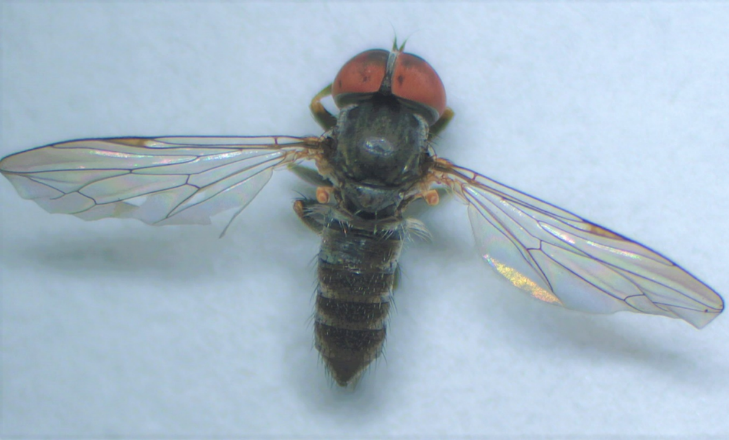 While working at SASA, I learned how scientific research is conducted and communicated in an industrial organisation. In particular, I learned how to present our findings within a government style report and communicate them effectively to the rest of the team. From this internship, I learned how to design and test/validate new primers and how to conduct Sanger sequencing and analyse DNA sequencing reads. These technical skills will be useful for future molecular experiments in my PhD project.
While working at SASA, I learned how scientific research is conducted and communicated in an industrial organisation. In particular, I learned how to present our findings within a government style report and communicate them effectively to the rest of the team. From this internship, I learned how to design and test/validate new primers and how to conduct Sanger sequencing and analyse DNA sequencing reads. These technical skills will be useful for future molecular experiments in my PhD project.
I really enjoyed the unique opportunity of working in a research department within an industry organisation. In addition, I enjoyed working as a team in a professional industrial environment and was also grateful to be trusted as the primary researcher for this project.
I was trusted to work independently and to use my time management skills to complete a research project and write a full report of the study within three months and with minimal supervision. Through problem solving and trouble-shooting new assays, this internship improved my confidence, competence and independence in working in the lab.
I hope that the findings from the study provide important and beneficial insight for SASA and will lead to future research on the use of biological control agents in Scottish agriculture."
2019 student Dagmar der Weduwen (St Andrews) completed her placement with the Naturalis Biodiversity Center and shared this feedback with EASTBIO students:
"I conducted research on fish jaw anatomy and evolution, comparing the bone structure of archerfish and gouramis using 3D models. I also took part in the museum’s LiveScience exhibit, where visitors can interact with museum researchers and volunteers while they are working. This meant I was able to communicate my research as I was conducting it, as well as explain the importance of research in general, give advice to children, teenagers, and students, and educate visitors on other biology topics that they were interested in. I also did four “Spotlight” presentations to audiences aged 8+, explaining the importance of my research at Naturalis.
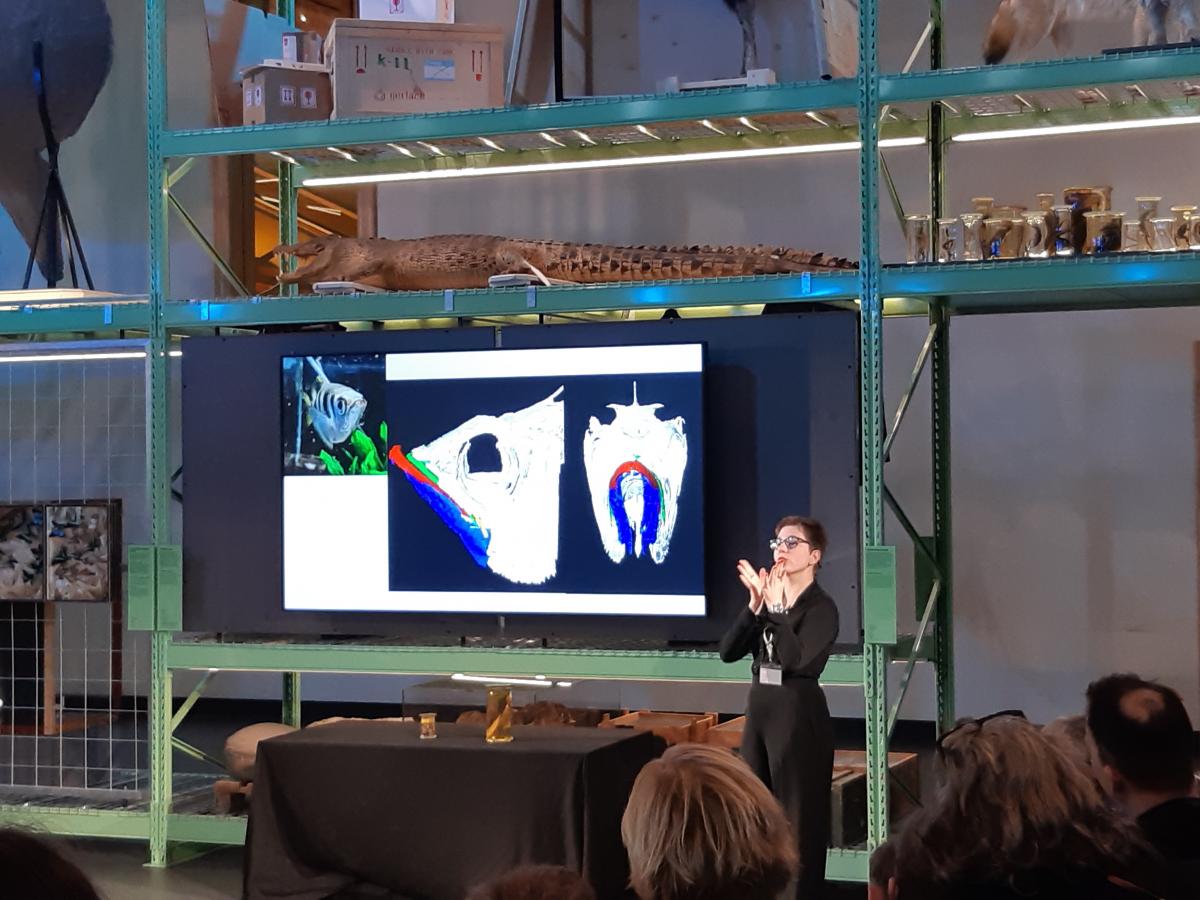
During my placement, I learned how to be a more effective science communicator. Working in two languages (Dutch and English) was a challenge but one I enjoyed. It forced me to think more closely about the language I used to explain my research. I also learned how to create 3D models and use them for comparative anatomy and evolutionary research.
I really enjoyed working in the LiveScience exhibit. I was able to interact with the museum visitors and explain my research, but also other biology concepts related to the museum exhibits. I especially enjoyed speaking to the children that would visit, as I was able to give them school/career advice. Naturalis was my favourite museum as a child, so I could tell the children visiting that they too could one day work there!
My time in the LiveScience exhibit, and the Spotlight presentations I did there, taught me how to effectively communicate complex scientific topics to a very wide audience. I educated people ages 3 and over, working in two languages. I was able to inspire confidence in and a passion for science in the people I spoke with.
I will continue to apply the science communication skills I learned at Naturalis in my freelance sci-comm work, as well as in my future career."
2019 intake student Laurine Brouck (Edinburgh) completed her placement with the Association of the British Pharmaceutical Industry (ABPI) and shared this feedback with us:
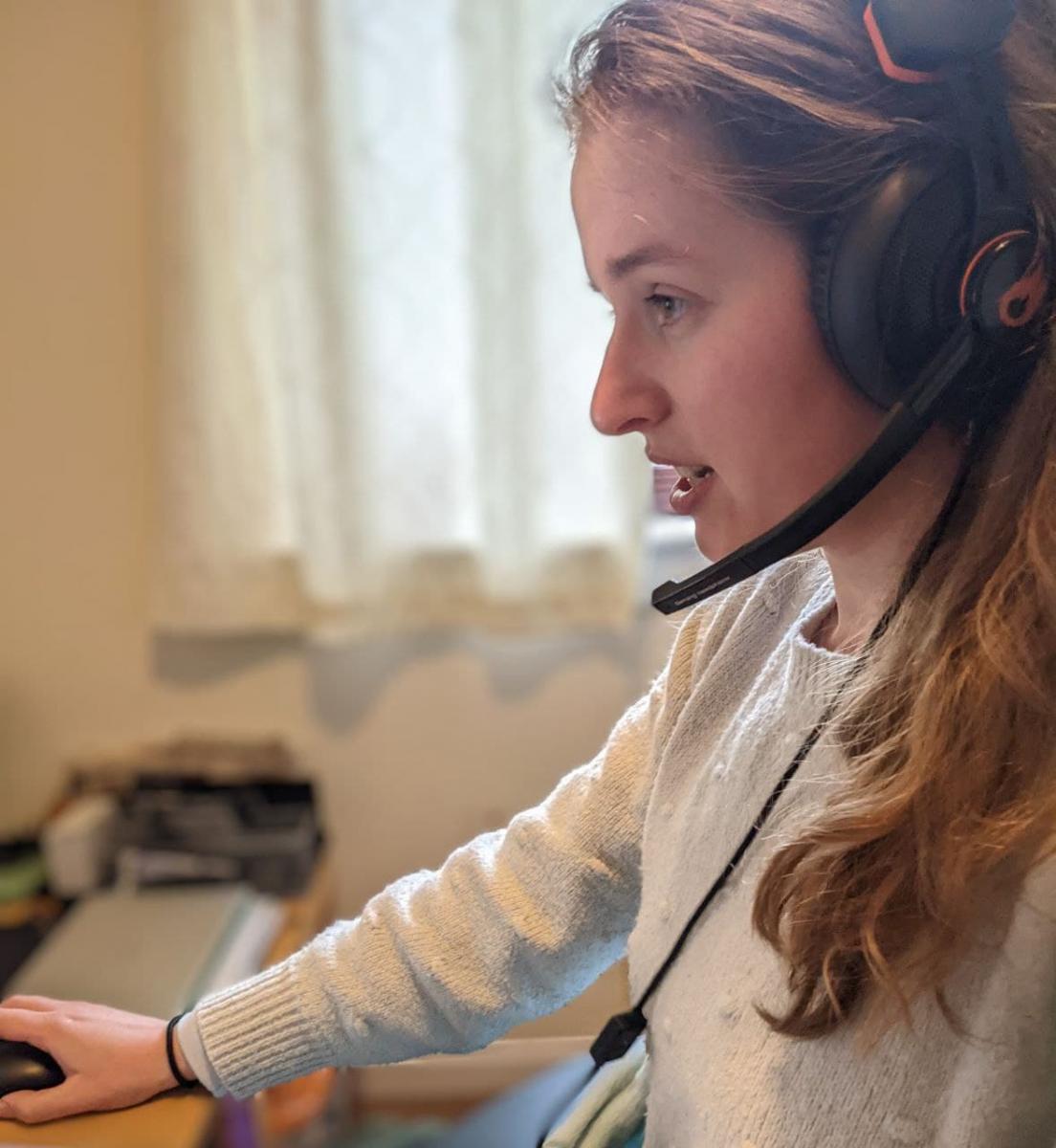 "As a Science Communicator, I created new interactive content for 7- to 11-year-olds on the new ABPI schools website. This involved planning and writing the content, and then working with the Education team to bring it to life. To do so, I learnt a lot about website development: from HTML fundamentals to website migration and accessibility. I also liaised with people from different departments and external stakeholders to receive feedback on my content and improve the website. I really enjoyed the creative aspect of my internship. After discussing the broad layout of the project, my line manager gave me carte blanche to create the new resources.
"As a Science Communicator, I created new interactive content for 7- to 11-year-olds on the new ABPI schools website. This involved planning and writing the content, and then working with the Education team to bring it to life. To do so, I learnt a lot about website development: from HTML fundamentals to website migration and accessibility. I also liaised with people from different departments and external stakeholders to receive feedback on my content and improve the website. I really enjoyed the creative aspect of my internship. After discussing the broad layout of the project, my line manager gave me carte blanche to create the new resources.
The most challenging part was to write for such a young audience. I spent a lot of time rephrasing my sentences to make them as clear and accurate as possible. I am particularly proud of the course I wrote about the classification of living organisms. This new content includes a short section about microorganisms, which I hope will attract children eager to learn more about a certain SARS-CoV-2 virus. I hope that this new course, together with the updated ABPI schools website, will contribute to make science more engaging and accessible to the general public – especially in the era of mass misinformation."
2019 cohort student Phil Butlin (Edinburgh) completed his placement with LettUs Grow. In his own words:
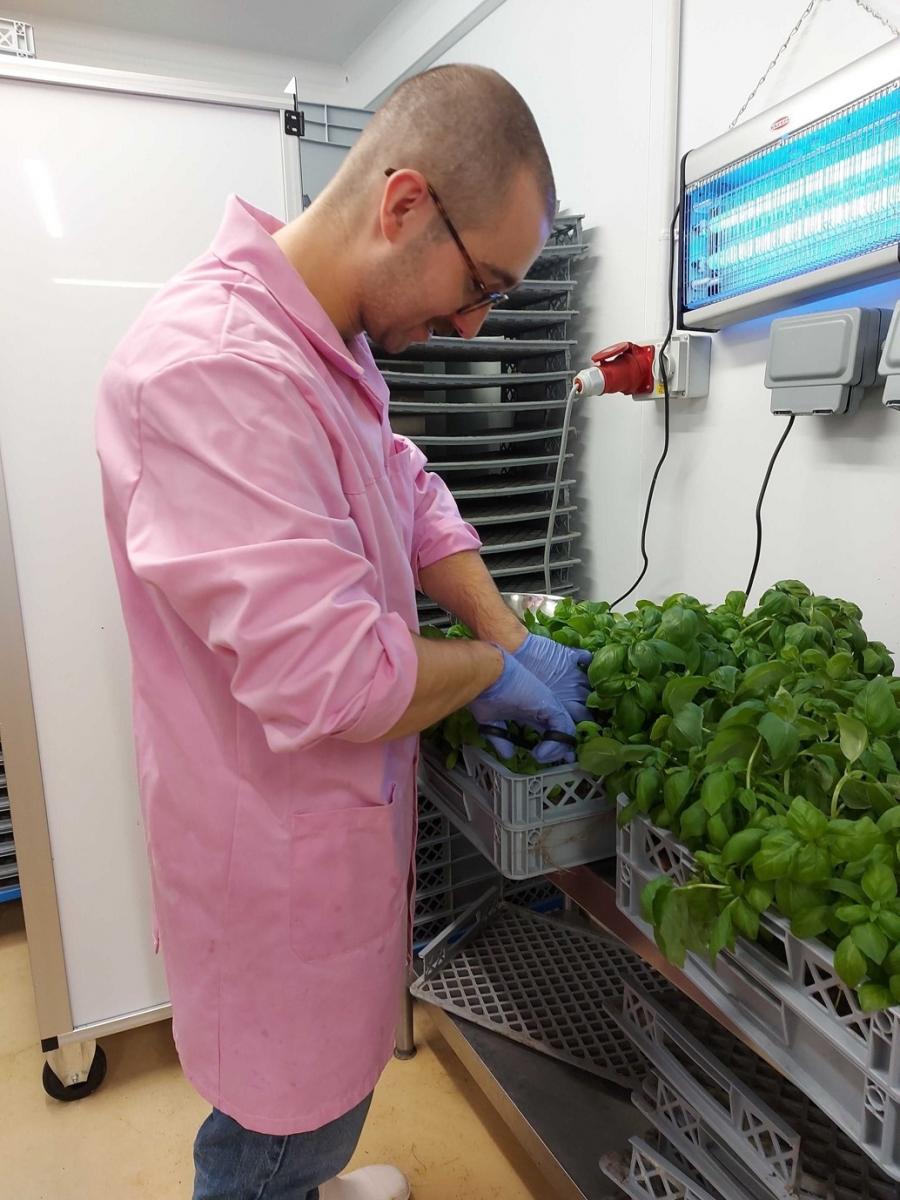 "While at LettUs Grow, I was working on a project to compare the performance of various light sources in their aeroponic vertical farming systems. To do this, we used various metrics to evaluate the growth of sweet basil, including tracking the height and leaf size of plants during development, and collecting additional data on the yield production efficiency, nutritional content and taste of crops at harvest. In addition to my main project, I also assisted in various other farm activities, such as cultivating and maintaining a wide variety of salads, herbs and microgreens, and helped with other tasks around the company, including installing and assembling aeroponic grow beds. Furthermore, I got to use my own expertise as a plant photobiologist to provide input to internal scientific meetings, as well as those with clients and collaborators.
"While at LettUs Grow, I was working on a project to compare the performance of various light sources in their aeroponic vertical farming systems. To do this, we used various metrics to evaluate the growth of sweet basil, including tracking the height and leaf size of plants during development, and collecting additional data on the yield production efficiency, nutritional content and taste of crops at harvest. In addition to my main project, I also assisted in various other farm activities, such as cultivating and maintaining a wide variety of salads, herbs and microgreens, and helped with other tasks around the company, including installing and assembling aeroponic grow beds. Furthermore, I got to use my own expertise as a plant photobiologist to provide input to internal scientific meetings, as well as those with clients and collaborators.
During my placement, I learnt a lot about the operational side of running and managing vertical farms, and also developed a much better understanding of how controlled environment agriculture systems work. In addition, I got to practice and hone my ability to present scientific findings to more general audiences in an industry setting, a skill which I have struggled with in the past. I also developed a much broader insight into the industry as a whole. In particular, I got to learn about how investment into vertical farms is brought in, the various approaches different companies were taking in terms of their technological developments, and what experts within the industry actually think of these plans.
I relished having the opportunity to apply the skills and knowledge I have developed so far during my PhD in an industry setting. In particular, I enjoyed trying to use my understanding of plant biology to tackle more applied issues, such as how to improve yield production using less energy, which will have benefits for both LettUs Grow’s customers and the climate. What surprised me the most, however, was how much I enjoyed working outside of academia – something I hadn’t particularly considered prior to my placement.
The findings of my work showed that switching to an alternative lighting provider to that currently used by LettUs Grow could lead to substantial yield increases in crops, while also consuming less energy. Although this was the case for a few light sources, I got to apply my own understanding of how light spectra alter plant growth to explain the trends we saw, and predict which LEDs may be suitable in different contexts (i.e. depending on customer needs).
I hope that my project will lead to a long standing collaboration for LettUs Grow, and help reduce energy for customers in the long-term, which will take LettUs Grow a step closer to achieving their goals of producing cheap, year-round and sustainable food production equipment."
2020 cohort student Moray Smith (James Hutton Institute) completed his placement with Nemedussa. He reported the following on his placement:
"My internship was focused on developing awareness and education of plant pathogenic nematodes (PPNs) in Sub-Saharan Africa with the Nemedussa project. First, I spent a month in Belgium, where I worked with collaborators from the International Institute of Tropical Agriculture (IITA) and Ghent University to develop an educational program on PPNs that will be run in several partnered universities in Sub-Saharan Africa. This included the development of an interactive, digital textbook using resources sent in by partners that will be deployed as a mobile and web application.
For the second half of my internship I moved to Kenya, where I was first based in Eldoret at Moi University (see photo below - Outside the main gate of Moi University with Dr Njira Njira Pili - project coordinator in Kenya). A trial of the educational program will be run at Moi University in 2022 and so I worked with partners at the university in preparation of this. I also assisted in setting up a new plant pathology laboratory at the University which can be used for pathogen diagnostics and research in the region. During my time in Eldoret, I also met potential industrial partners, such as apple growers or cotton producers that could also benefit from this investment in plant pathology.
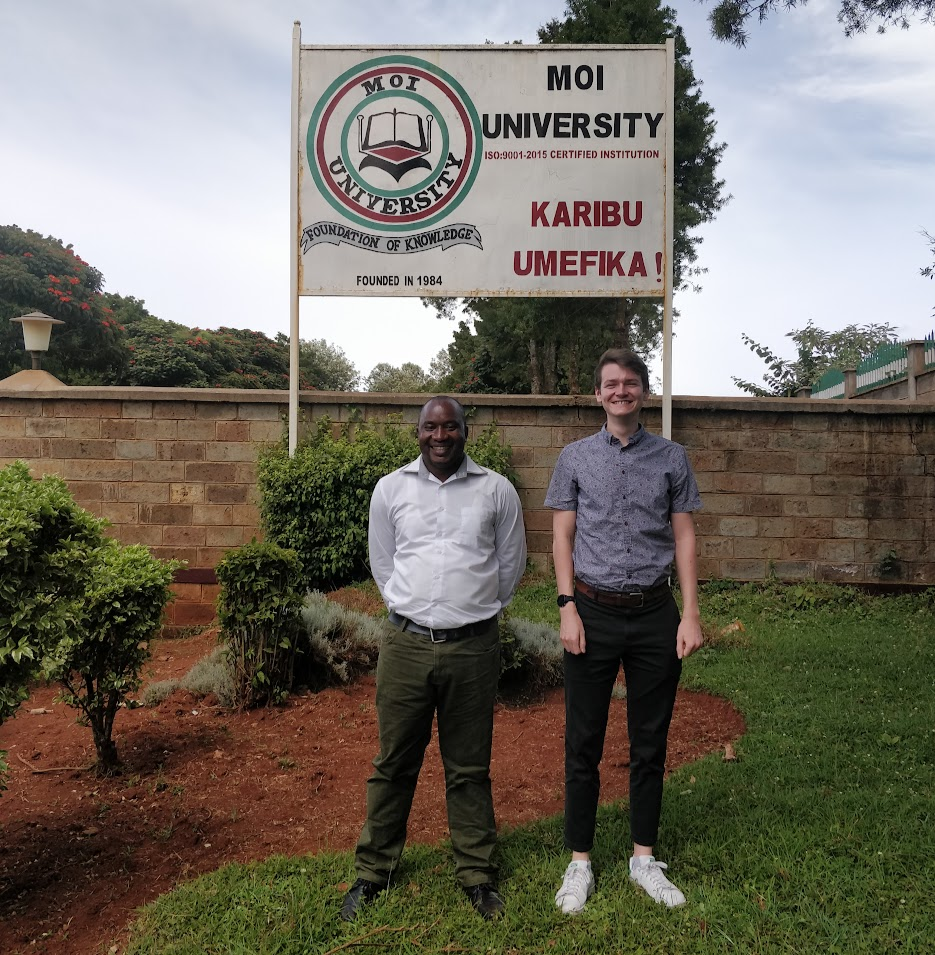 For the final stage of my internship, I moved to Nairobi, where I was based at the International Centre of Insect Physiology and Ecology (ICIPE), where I was to present feedback on the recent project developments at Moi University and the current progress of the educational program. I was also going to assist with the ‘Basic Crash Course in Nematology’, a one-week course at ICIPE that would provide training on PPN identification and treatment, and soil health. Unfortunately, due to travel restrictions, this was cut short and so I returned to the UK and completed these aims remotely.
For the final stage of my internship, I moved to Nairobi, where I was based at the International Centre of Insect Physiology and Ecology (ICIPE), where I was to present feedback on the recent project developments at Moi University and the current progress of the educational program. I was also going to assist with the ‘Basic Crash Course in Nematology’, a one-week course at ICIPE that would provide training on PPN identification and treatment, and soil health. Unfortunately, due to travel restrictions, this was cut short and so I returned to the UK and completed these aims remotely.
I particularly enjoyed the opportunity to set up a laboratory at Moi University. It presented some unexpected challenges, including rewiring plug sockets so that they would be suitable for lab equipment, and trying to set up a sterile environment in a very dusty area! The laboratory will be the first of its kind in the region and will be a massive benefit to plant pathology diagnostics, research, and education in the Great Rift Valley region.
During my internship, I took the development of a textbook, a large part of the project that had been falling behind schedule and brought it back on time, avoiding additional expenses and potential financial penalties from the funding organisation.
A long-term benefit of the project will be the development of plant pathology resources in Sub-Saharan Africa. Awareness amongst farmers and industries is chronically low and the establishment of an educational program in-country will be a key part of tackling this. The program and laboratory will also serve as a platform for future research into PPNs, an understudied group of pathogens that have a massive impact on crop yield in the region."
2019 student Akanksha Jain (University of Edinburgh) sent the following feedback on her placement with Epilepsy Research UK:
I worked on various projects in the Epilepsy Research UK. I analysed in collaboration the current landscape of epilepsy research in the UK to map the funding trends of epilepsy research. The work was published as an impact report on the Epilepsy Research UK website. Epilepsy Research UK launched the SHAPE EPILEPSY RESEARCH NETWORK as part of their #a Life Interrupted campaign. The SHAPE NETWORK involves people affected by epilepsy to include them into decisions on funding of epilepsy research. I have been collating and analysing responses to the SHAPE questionnaire that people have filled in to join the SHAPE NETWORK. Throughout the internship, I also wrote scientific news and blog posts which have been published on the Epilepsy Research UK website.
Looking back at my internship today, it helped me recognise the impact of my own research in a larger context. As a researcher, sometimes it is difficult to see the long-term aim of your research. Since research takes a long time, it was wonderful to experience first-hand how research benefits people. Especially for me, I have learnt how patient-people involvement (PPI) matters in charity-funded research and how charities use PPI to focus and guide the future research such as in epilepsy in the case of Epilepsy Research UK.
Like many things moving online last year, the internship was ‘virtual’. Working remotely meant I could carry out this project whilst living in Scotland, despite being 500 miles away from the charity office in London. Although I was worried about missing out on the social aspects of work, my manager, Caoimhe Twohig Bennett, the Head of Research, was always on the other end of Microsoft Teams waiting to answer my questions, or even just to gossip about the latest episode of the Great British Bake Off. Since my lab has only been partially opened due to the pandemic, I worked on my internship part-time to also focus on my PhD lab work. This has hugely helped me not to lose track of my PhD project and enjoy the vast benefits of an internship.
The data I have been analysing for the SHAPE NETWORK is already being shared within the charity and the general public. It is very exciting that the data I helped collect and analyse is influencing Epilepsy Research UK decisions on funding and identifying research priorities for the charity going ahead. It is brilliant to see the news articles and blog posts I wrote for the charity have all been published. I was also one of the panellists in ‘Participating in Research’ webinar hosted by the Epilepsy Research UK to discuss the latest SHAPE NETWORK statistics. The webinar is available across all social network- Twitter, Youtube, Facebook. The entire webinar experience was so fantastic to end my internship on!
Here are some links to my news articles, blog posts, and webinar! Life outside the Lab: Akanksha's experience gaining insight into the personal impact of living with epilepsy | Epilepsy Research UK
'Shaping the Future of Research into Epilepsy' report by Epilepsy Research UK - issuu
2020 Nobel Prize Award Could Revolutionise Epilepsy Treatment | Epilepsy Research UK
Research Roundtable on Participating in Research - YouTube
Before I started the internship, I expected to leave the internship with broader knowledge of funding and career opportunities in non-academic research sector, but now I am leaving with more than I bargained for. The internship with the Epilepsy Research UK has been a wonderful chance not just career wise, but to make long-term networks outside academia as well as to understand the significance of PPI and research charities in scientific research. With the knowledge and experience I have gained through this internship; I have opened more career pathways from charity research to science communication to consider for my future self.
2018 cohort student Christine Jack (University of Aberdeen) completed her placement with Elasmogen. The aim of her internship project was to isolate and characterise an antigen specific VNAR so that it could be used as an additional screening tool during the drug development process. This meant that she had to use a variety of different techniques, including large scale protein expression, purification and verification of target binding by ELISA.
Of the things she's enjoyed during her PIPS, Christine mentioned "contributing her relative ‘expertise’ in an area the team was starting to work in. She helped to optimise experimental design in one of the flow cytometry techniques for Elasmogen to use." She also stressed "the successful cloning and characterisation of the VNAR of interest she was working, so the team now have a new tool for their future drug screening program." In terms of long-term benefit, Christine has this to say: "My internship has allowed me to gain an understanding of how a small biosciences company is organised and would now be an area I would consider for future employment. In addition, this internship opportunity allowed me to see the ‘real life’ application of many of the techniques I’ve learnt during my PhD and has given me the confidence in applying my knowledge in a new environment."
 2018 cohort student Matthew French (University of Edinburgh) recently completed his placement with HigherSteaks.
2018 cohort student Matthew French (University of Edinburgh) recently completed his placement with HigherSteaks.
The Research and Development experience has allowed him -- in his own words -- to contribute toward "greatly improving a key process in the company", "greatly improved his understanding of the industry and general start-up business inner workings." Matthew's conclusion was that this experience has "improved his employability in this sector" whilst also "meeting some great people along the way."
Matthew, in festive attire, can be seen in the photo, second on the left
2019 cohort student Laura MacKenzie (University of Aberdeen) has recently completed a 3-month placement with the Department for Environment Food and Rural Affairs. She had this to say about the placement:
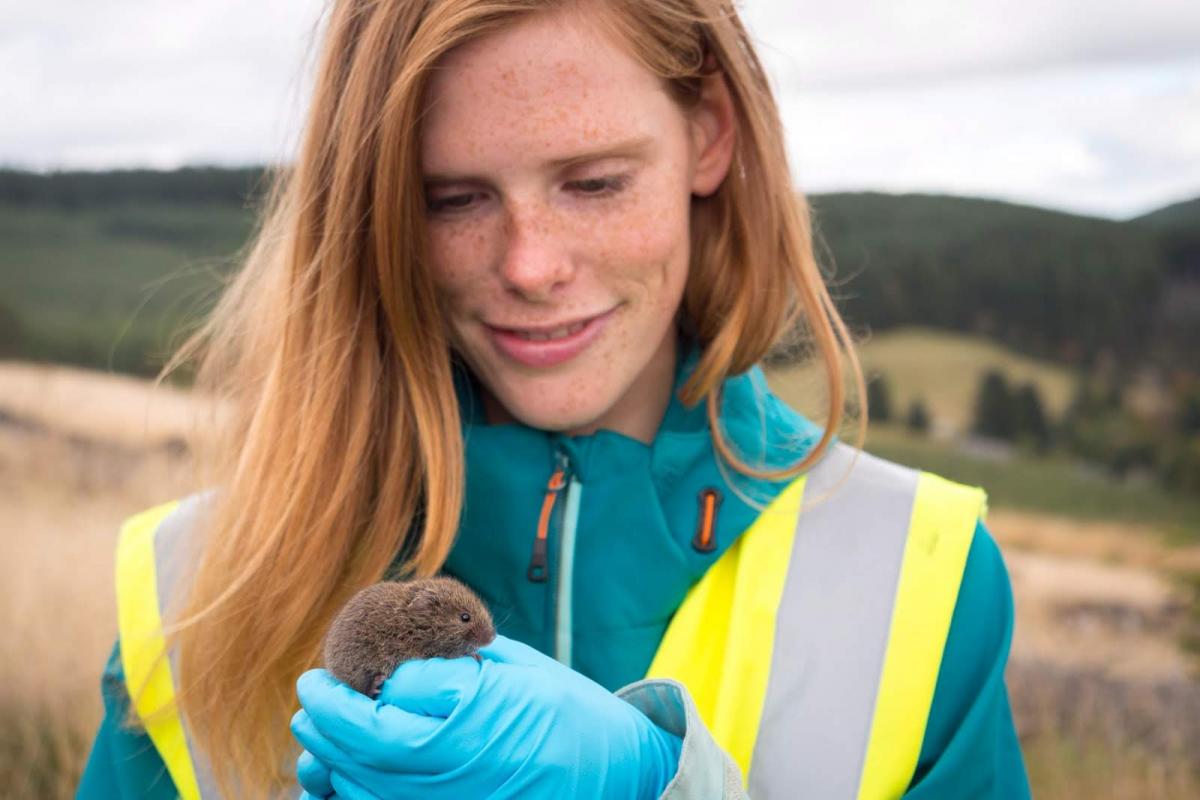 "During my internship I had the opportunity to lead on the organisation of the G7 Chief Veterinary Officer (CVO) meeting, held on 4th May 2021... [T]he discussion addressed three key themes: wildlife health surveillance, intelligence sharing and risk communication. [...] Further, I had the chance of rounding off the project by drafting the G7 meeting's agreed Chair’s summary. This piece of work was presented during an intervention by the UK Delegate (UK CVO) at the World Animal Health Organisation (OIE) 88th General Session, in front of 182 member countries.
"During my internship I had the opportunity to lead on the organisation of the G7 Chief Veterinary Officer (CVO) meeting, held on 4th May 2021... [T]he discussion addressed three key themes: wildlife health surveillance, intelligence sharing and risk communication. [...] Further, I had the chance of rounding off the project by drafting the G7 meeting's agreed Chair’s summary. This piece of work was presented during an intervention by the UK Delegate (UK CVO) at the World Animal Health Organisation (OIE) 88th General Session, in front of 182 member countries.
Lastly, I prepared a short reflection from the meeting, published by the UK CVO, Christine Middlemiss, on the government’s veterinary blog.
Next to this larger project, I also contributed scientific expertise to several smaller pieces of work, including the Defra response to the report “COVID 19: make it the last pandemic” by the Independent Panel for Pandemic Preparedness and Response.
Despite this internship running for only 3-months, I have learnt a lot during this internship, from project management to how science informs policy. I have learnt how to write in a more accessible way, appropriate to policy makers. Further, I am now confident in leading on my own project, while closely collaborating with team members. I am now more confident to engage and collaborate with international stakeholders.
Being given the opportunity to fully lead on my own project was a great chance to develop my skills and confidence. While challenging at times, I really enjoyed taking ownership of the project, seeing it develop, while having a very supportive team around me to help as needed. I enjoyed engaging with all colleagues and international stakeholders to make this project a full success."
2018 cohort student Ana Rozman (University of Aberdeen) has recently completed her placement with the Academy of Medical Sciences. This is what Ana said about her placement:
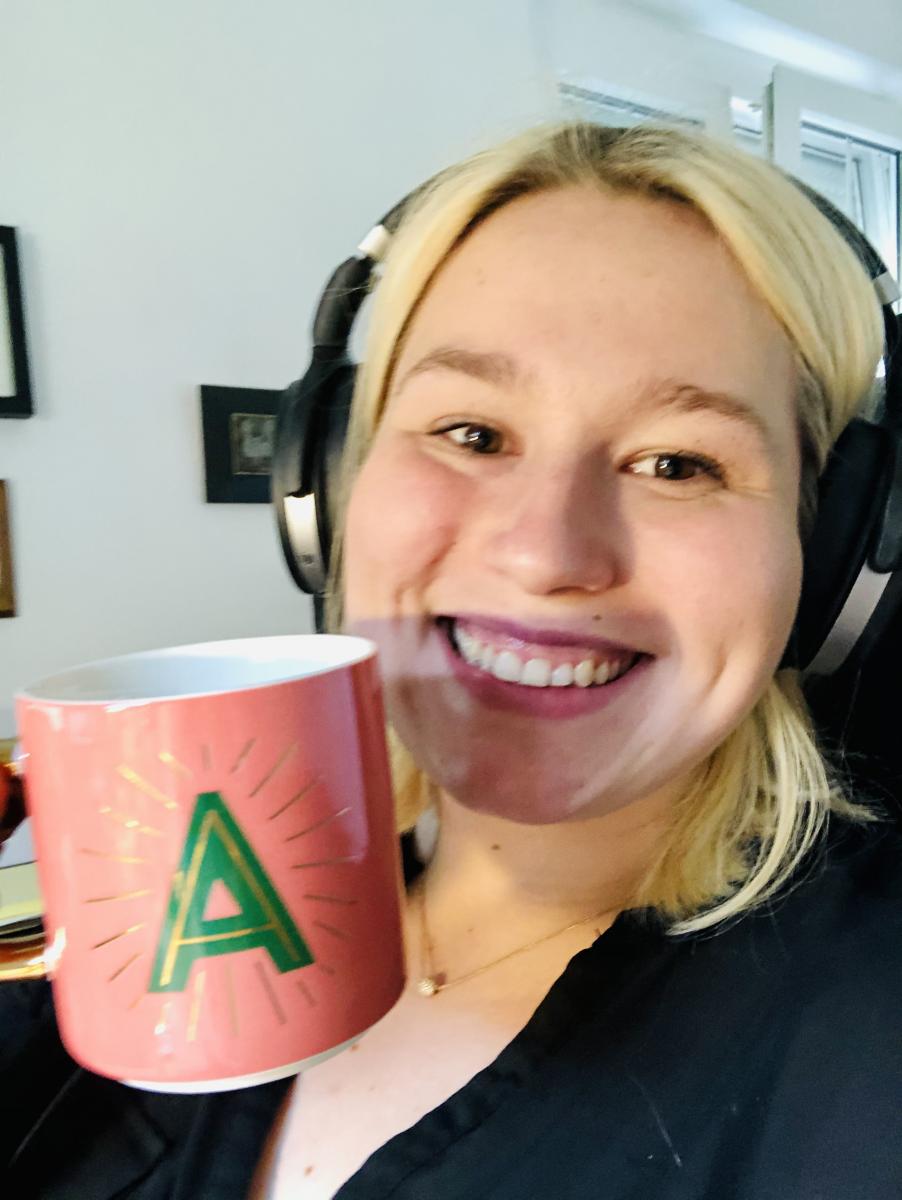 "During my internship, I became a team member at the Academy of Medical Sciences Careers Team, working on a variety of projects related to biomedical research career development and training opportunities, as well as grant management. Some of my projects included organising an event on academic publishing, refreshing a COVID-19 Career Support Space, running career development events, participating in grant management and panel review processes and communicating with partners on behalf of the Academy.
"During my internship, I became a team member at the Academy of Medical Sciences Careers Team, working on a variety of projects related to biomedical research career development and training opportunities, as well as grant management. Some of my projects included organising an event on academic publishing, refreshing a COVID-19 Career Support Space, running career development events, participating in grant management and panel review processes and communicating with partners on behalf of the Academy.
The internship has been a great learning experience in working as part of a larger, diverse team. I have learned how to better manage my time, organise and delegate work for completion of a larger project, and effectively communicate with diverse audiences. At the same time, I have gained numerous insights into biomedical research funding and career support mechanisms available.
My role required a numerous written outputs -- i am usually not too excited to tackle writing tasks but having to produce written pieces under tight deadlines has given me a new understanding of the very important key phrase ‘finished, not perfect’ .
One of my favourite projects I have worked on during my placement has been refreshing the COVID-19 Career Support Space which organises useful reflections, resources, and tools to support clinical and biomedical researchers throughout the pandemic. This experience required analysis of the current space, preparation of multiple refresh proposals, communication and presentation of ideas to the expert advisory group, acting on the group feedback, preparing tools for project management, delegating tasks, writing summaries in the appropriate tone, as well as managing the technical execution by editing the webpages. Through this challenging but creative and extremely enjoyable task, I have developed transferable skills, such as communication with diverse audiences, as well as project and time management.
The internship has provided me a very valuable experience of the research support environment and enhanced confidence in my work. Both of these will be extremely useful for me, continuing my career path within or outside of academia. Most importantly, I have had a positive experience of professional environment culture, which I will be able to recall at any stage of my future career."











